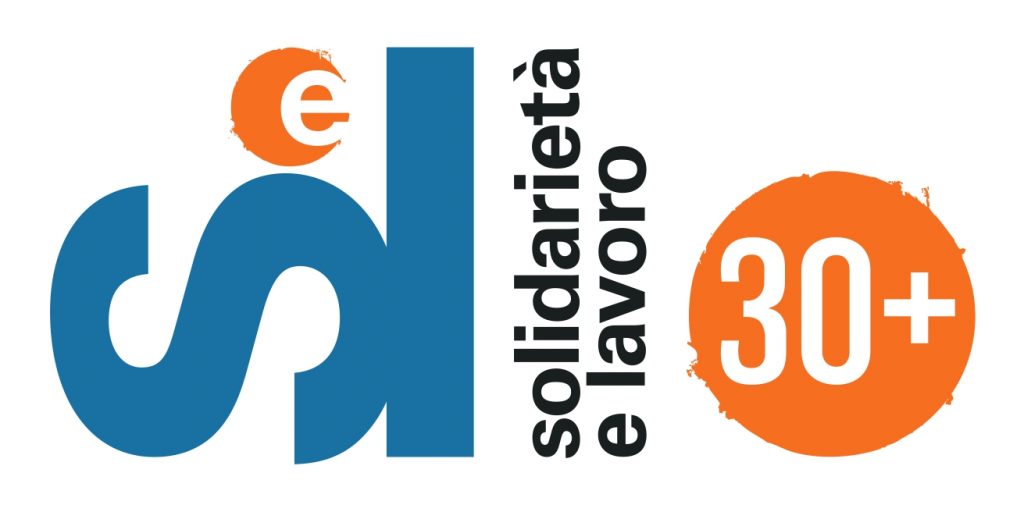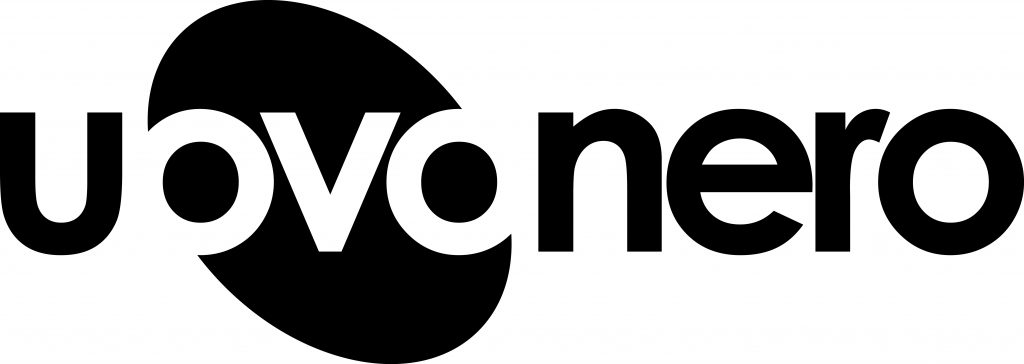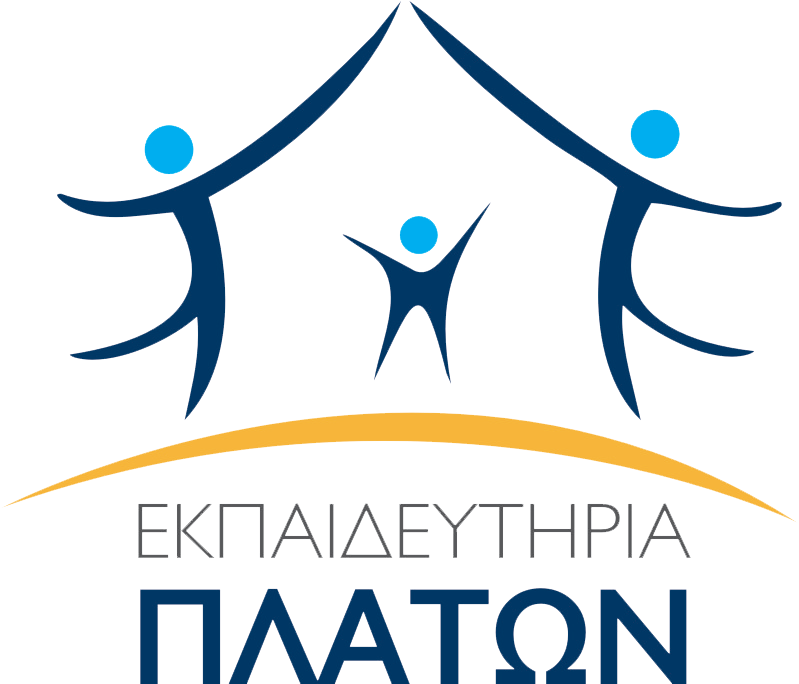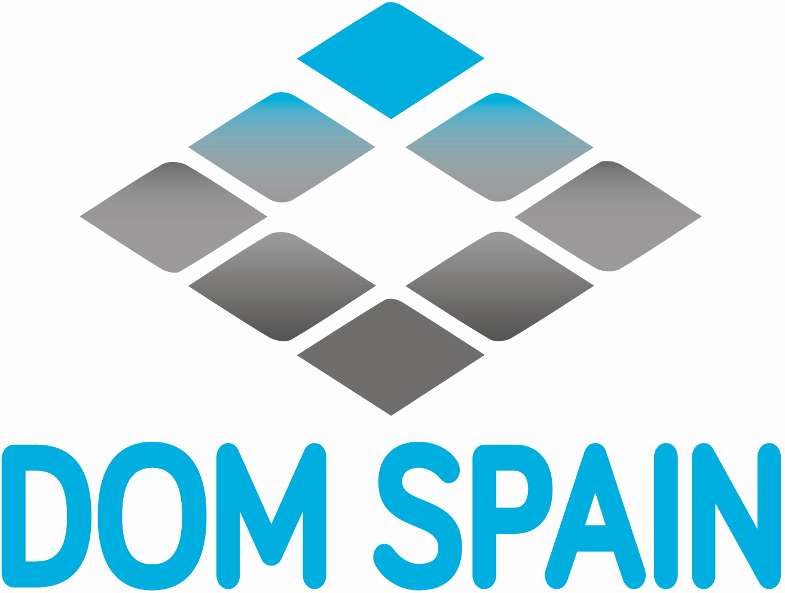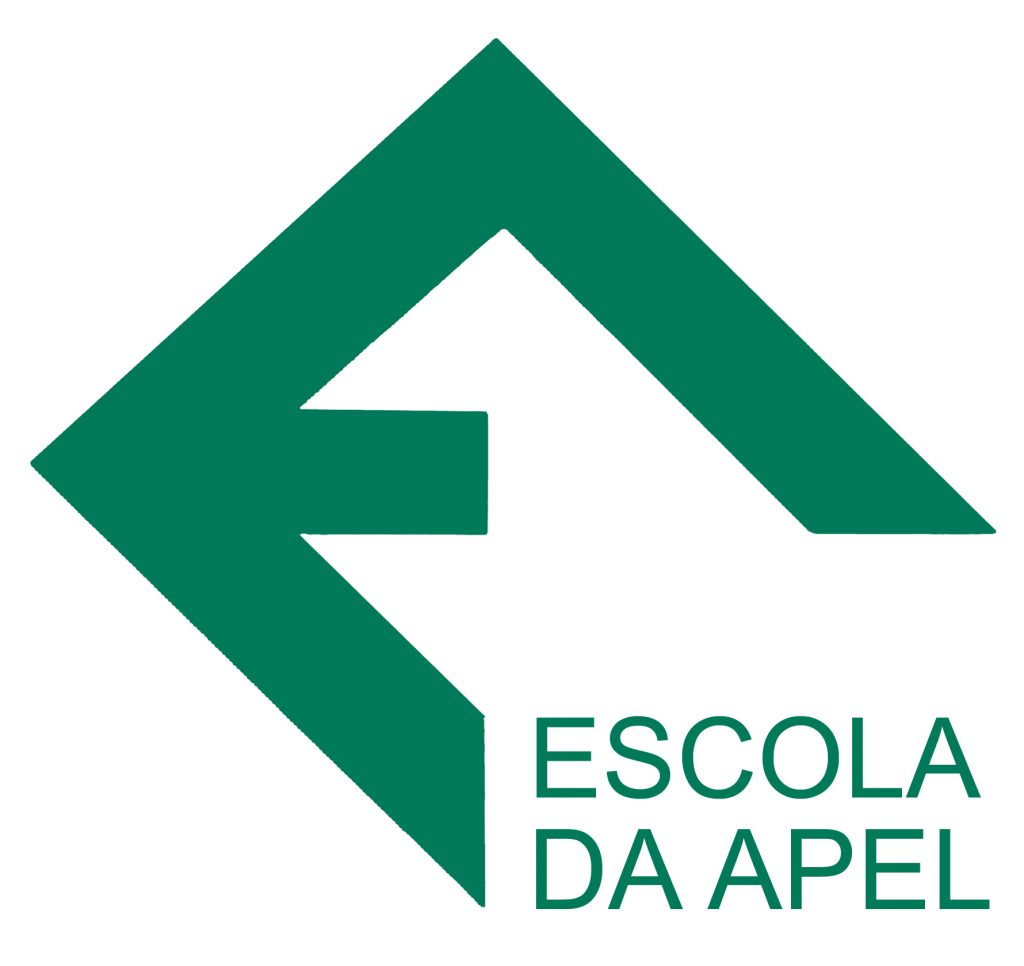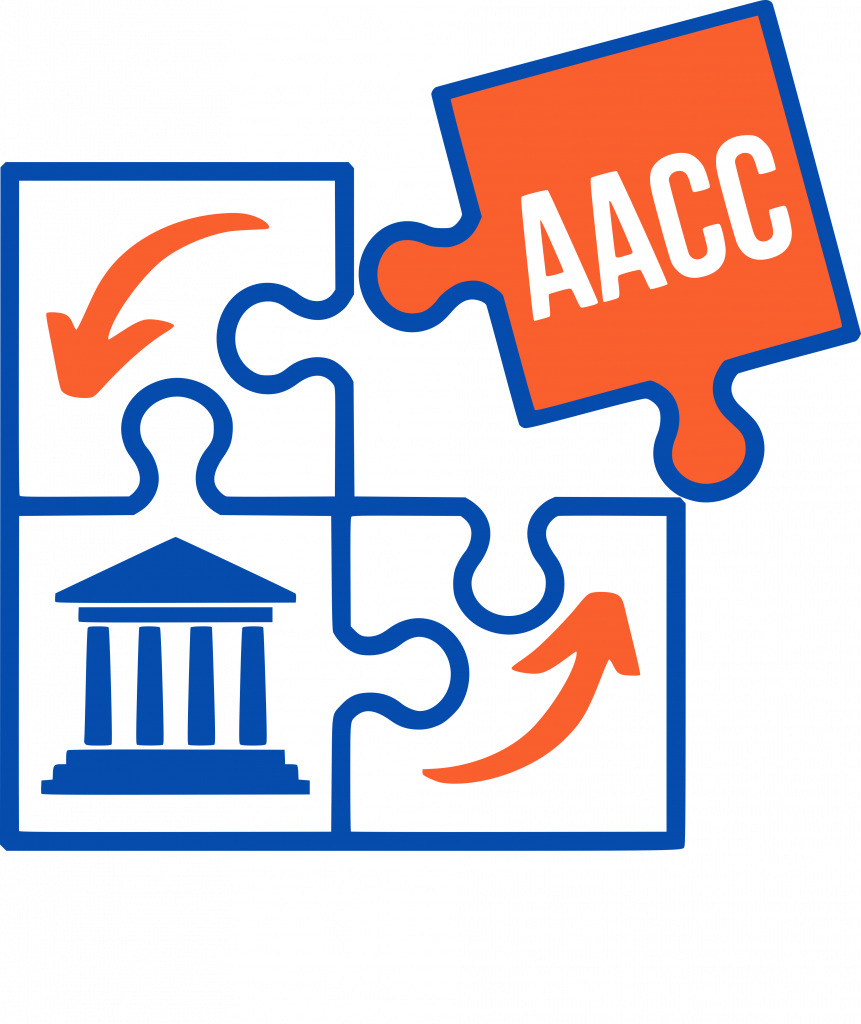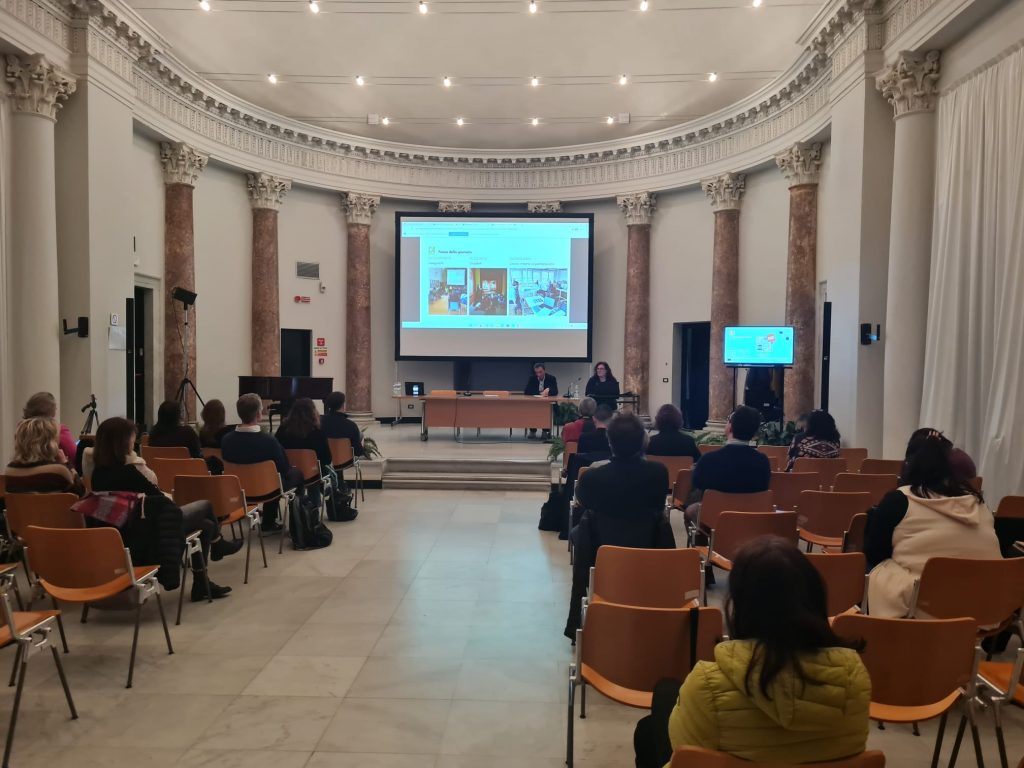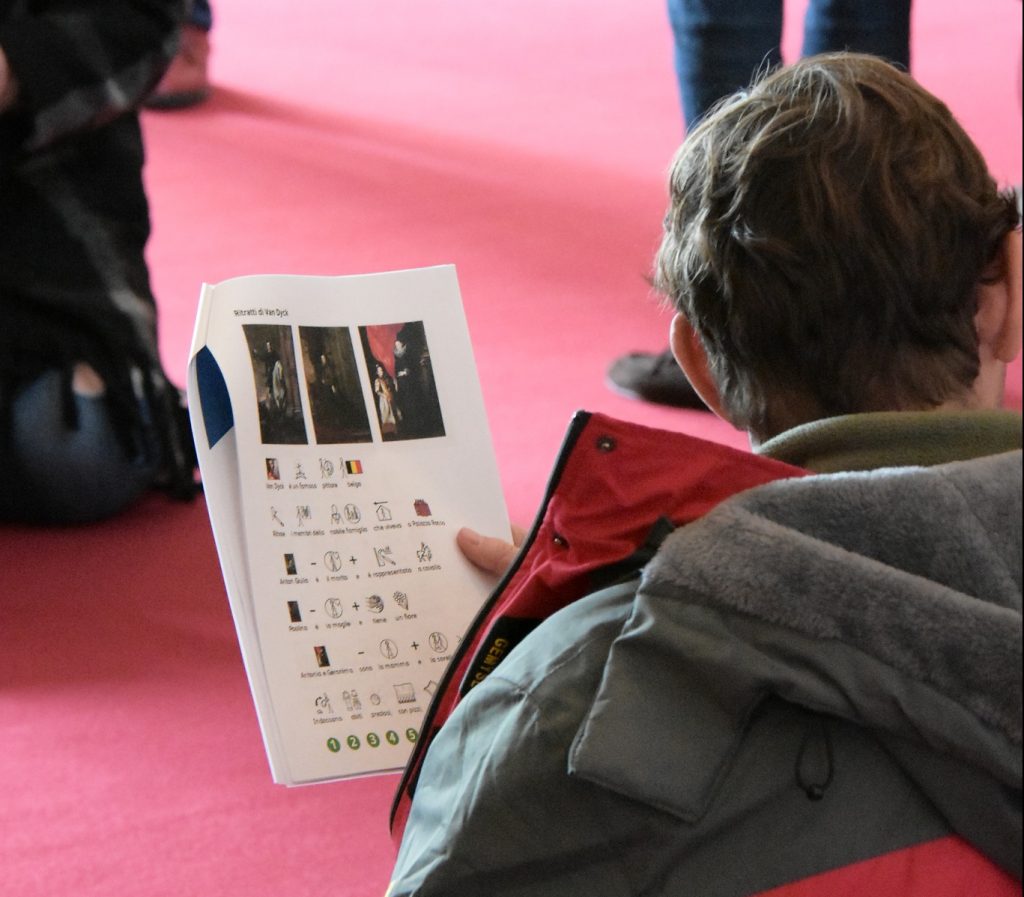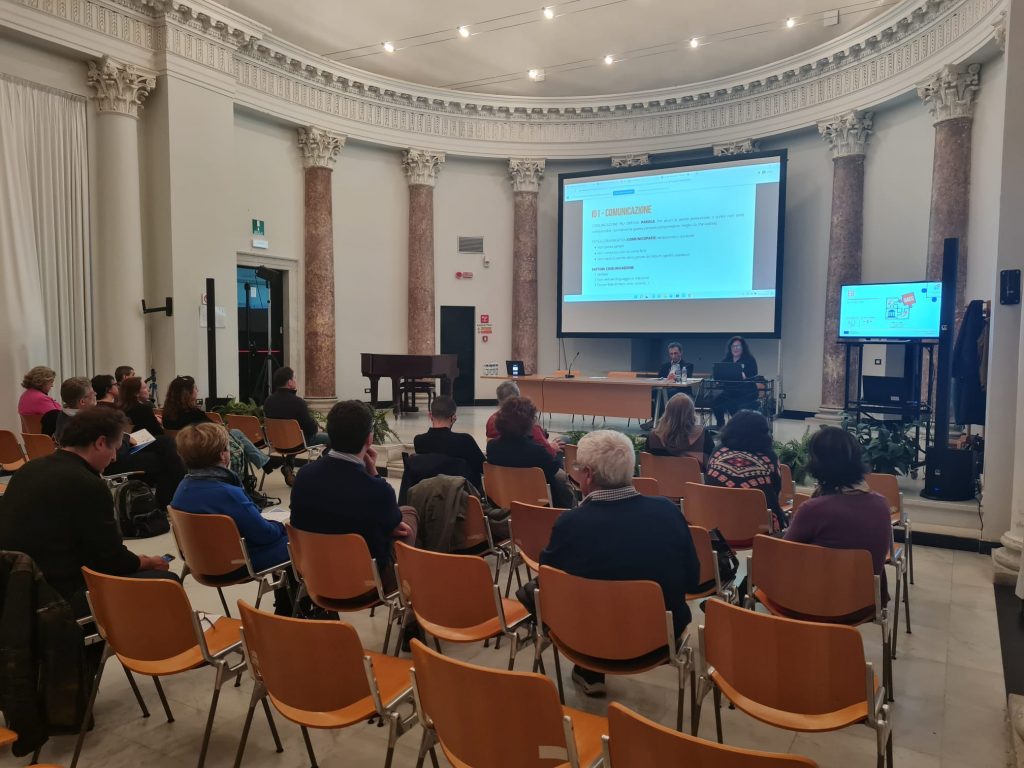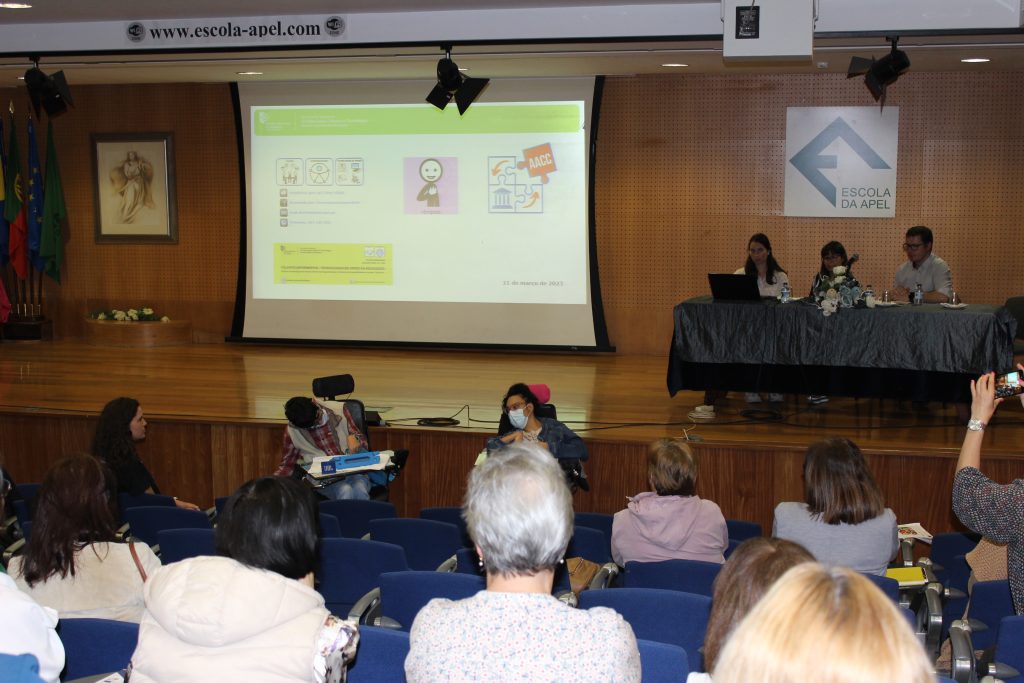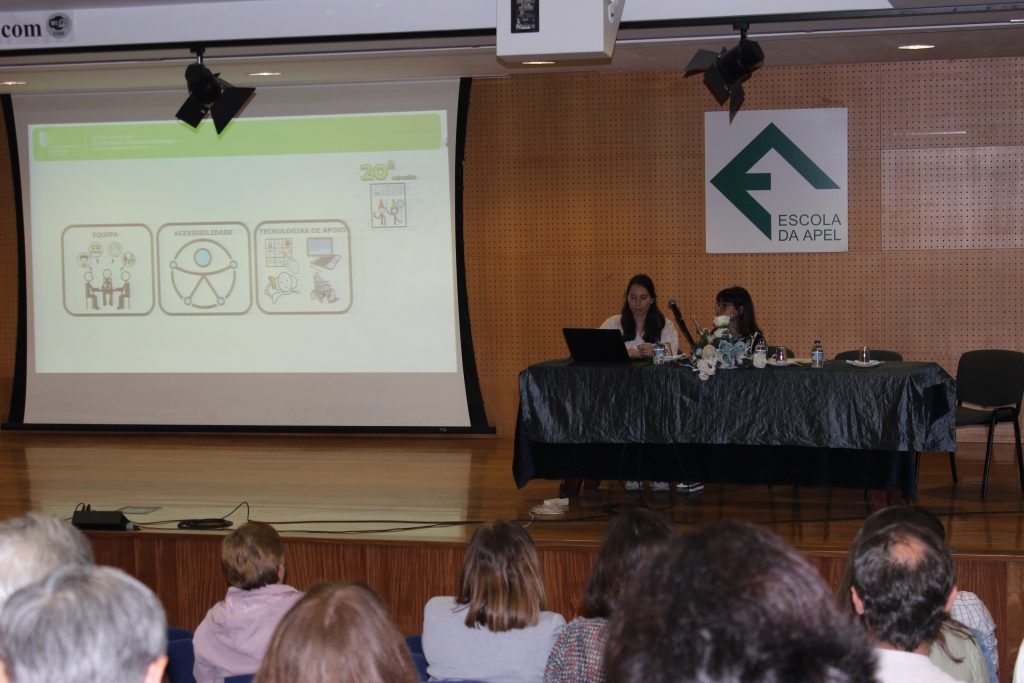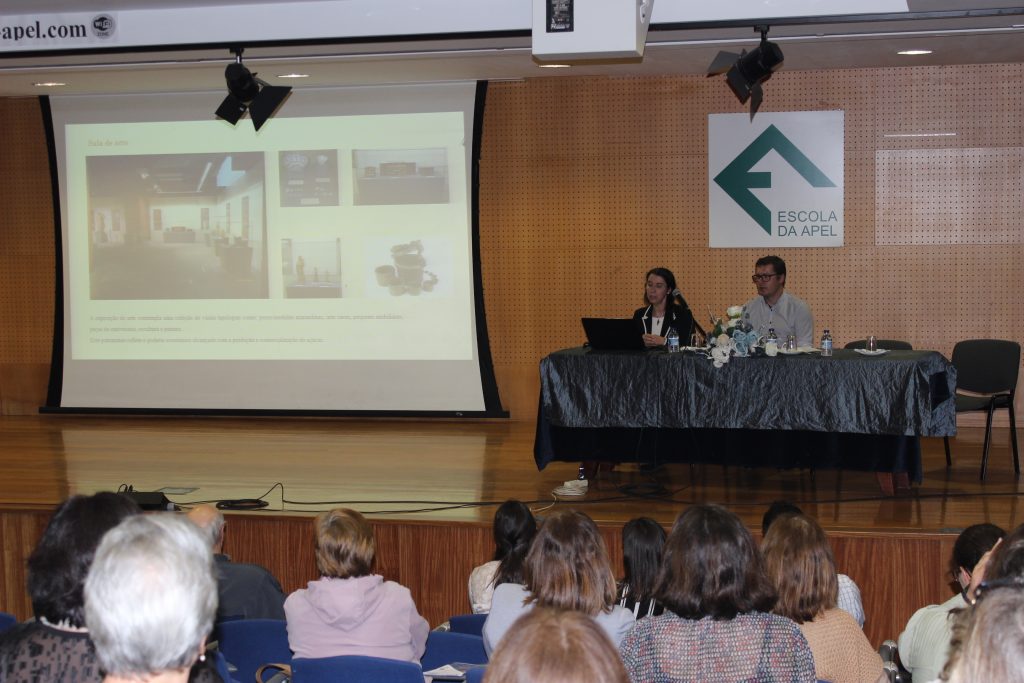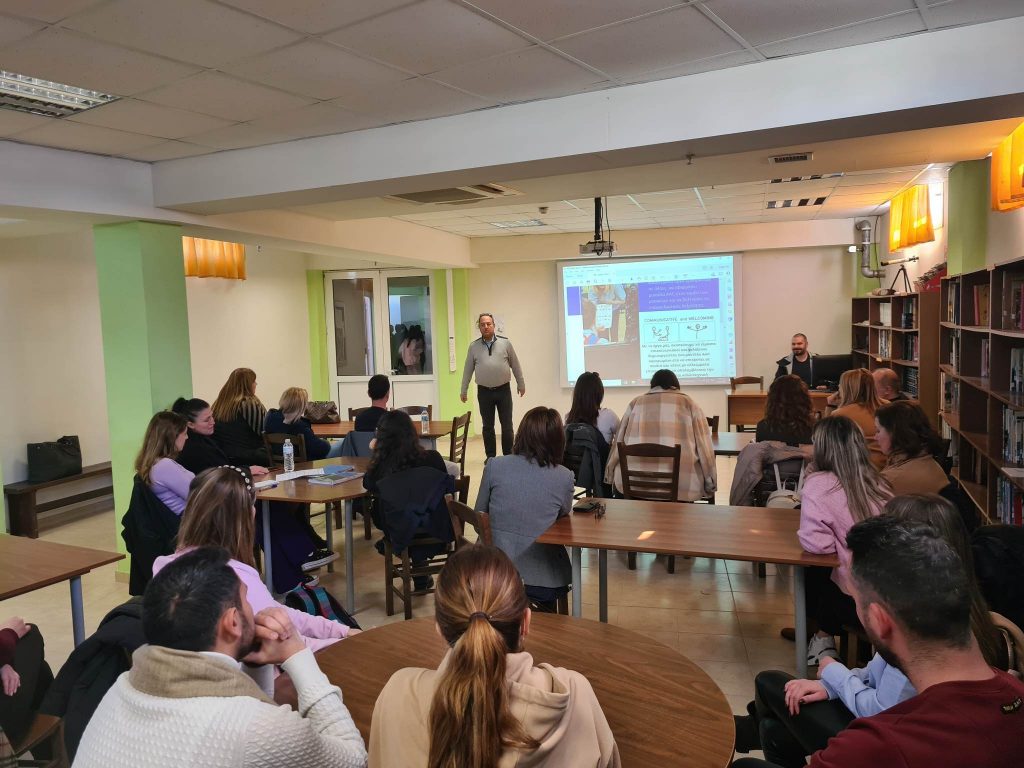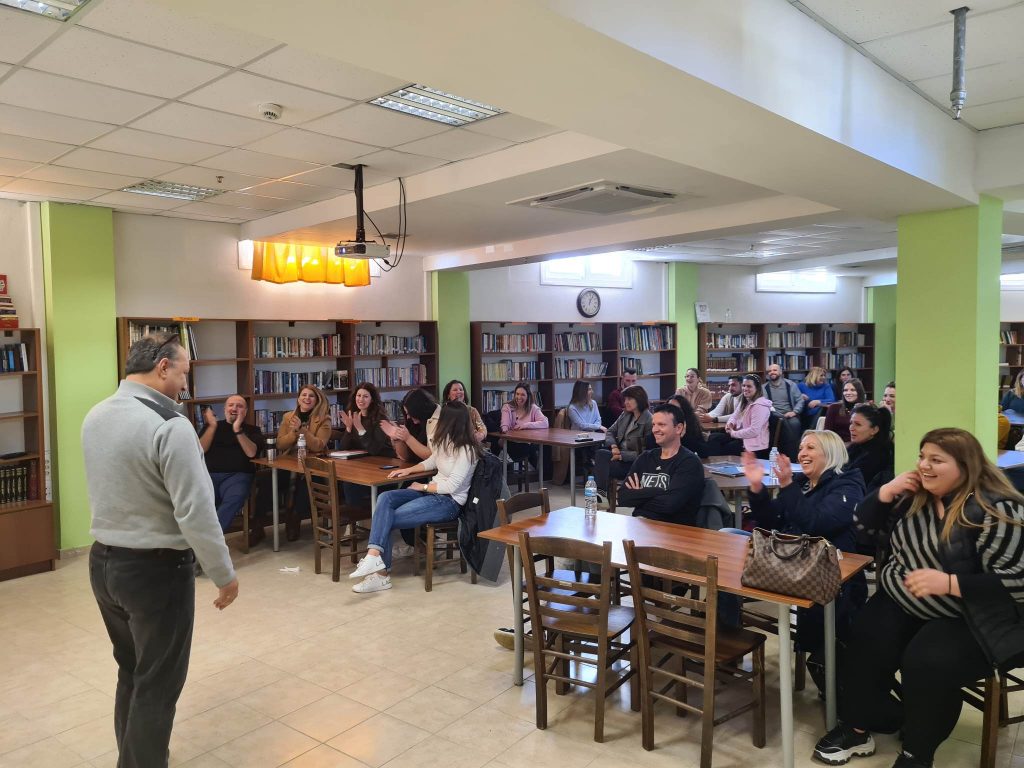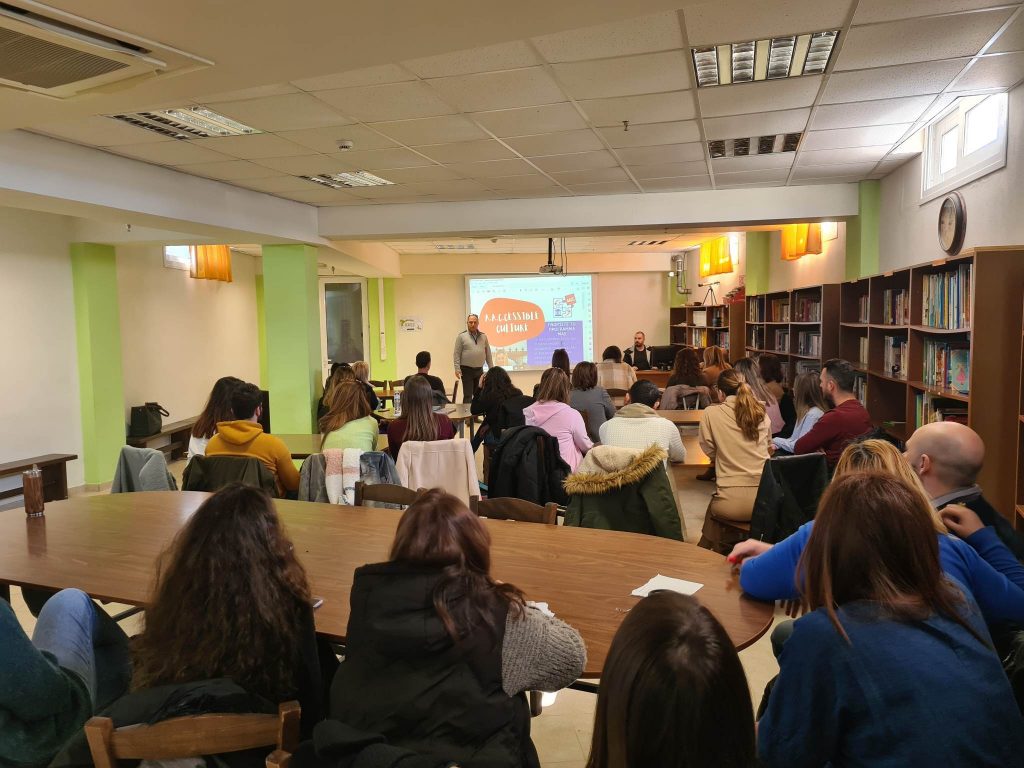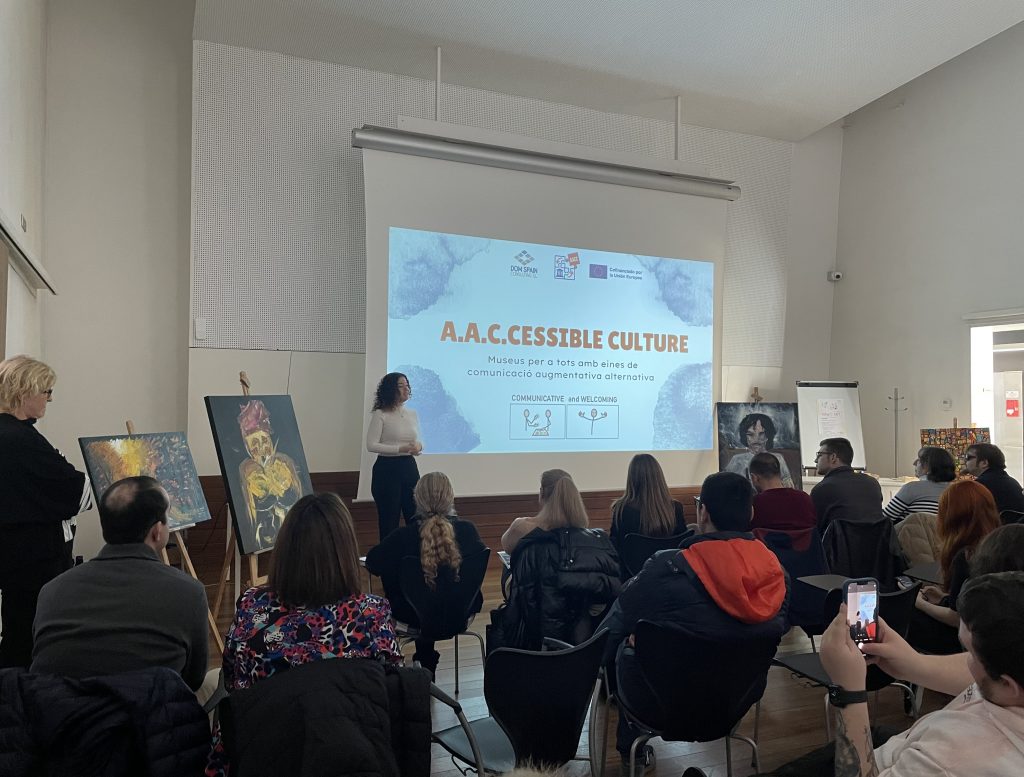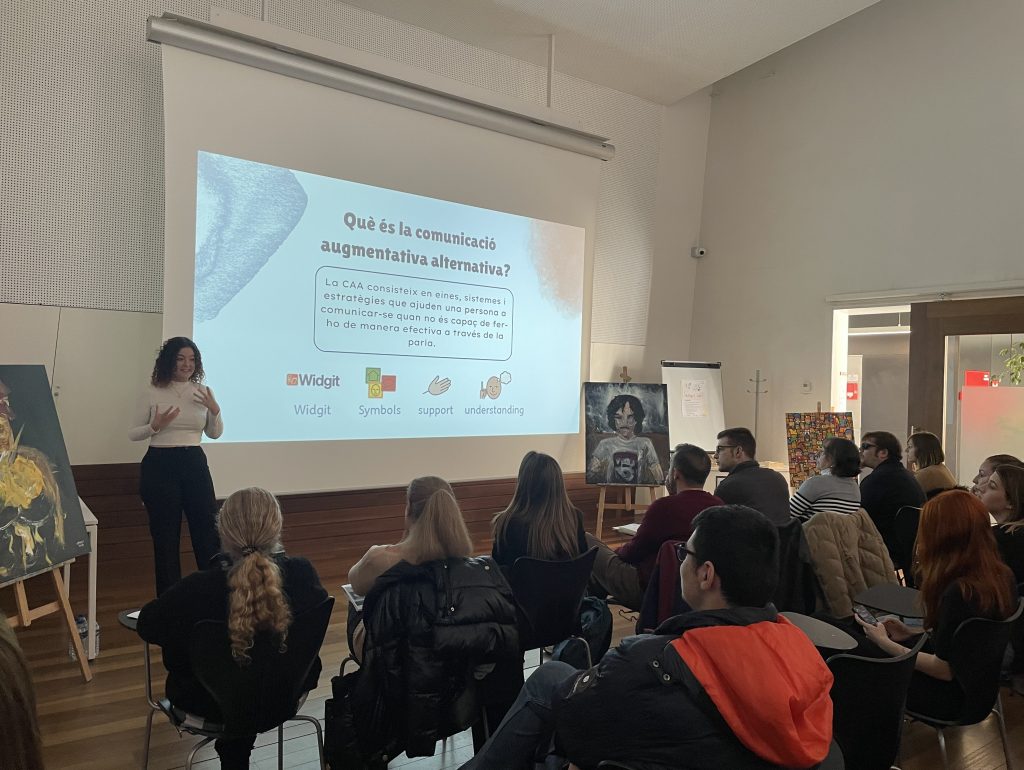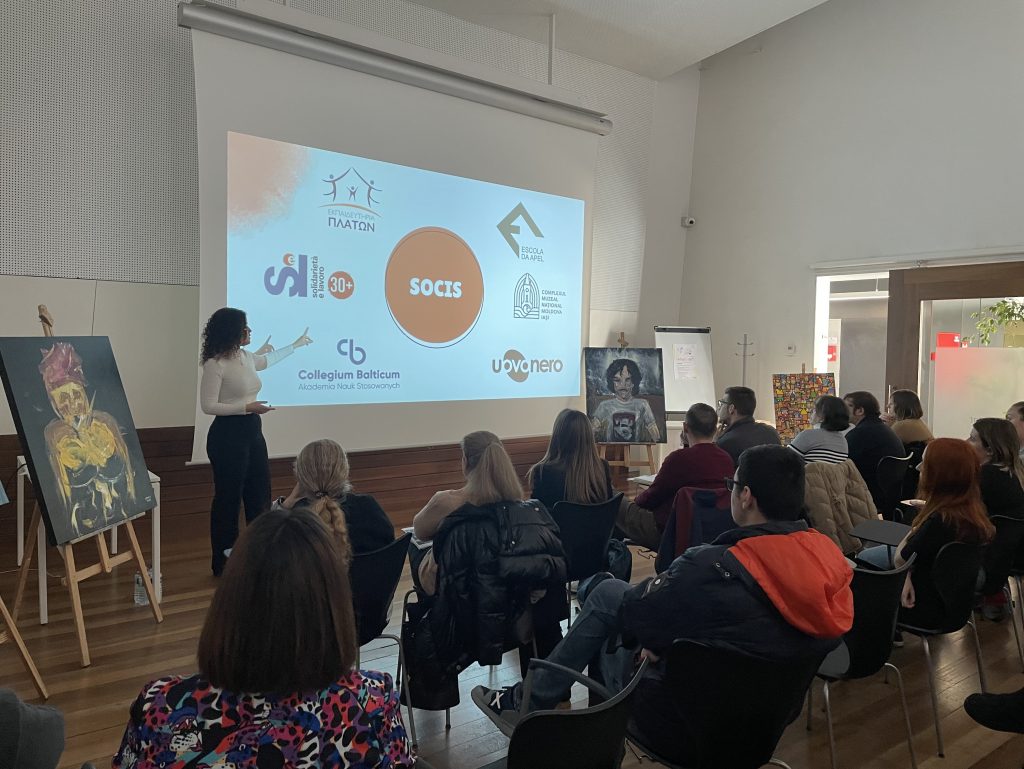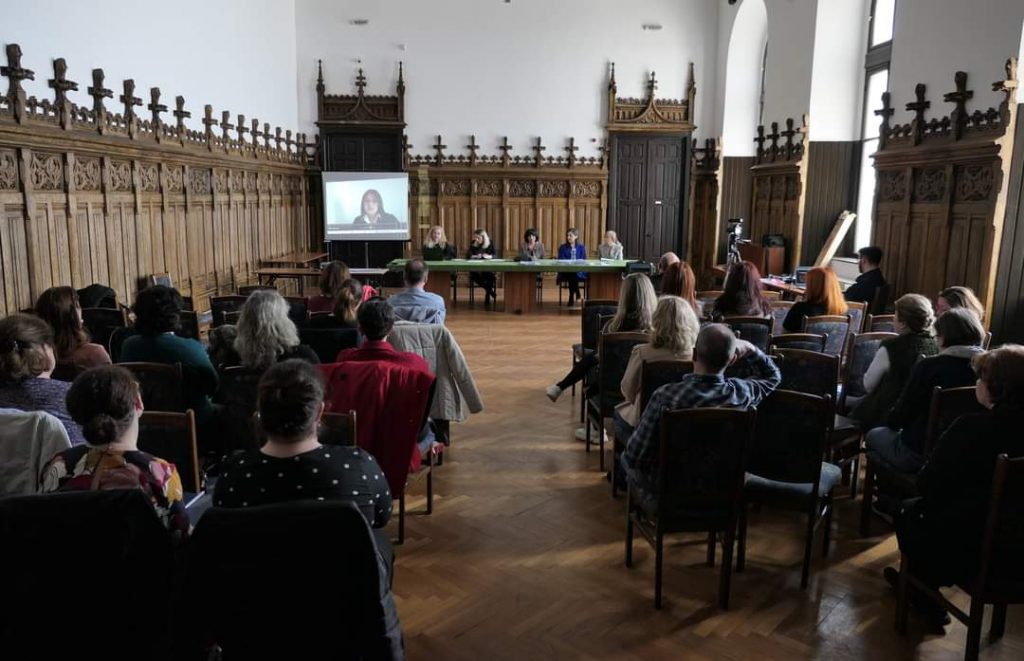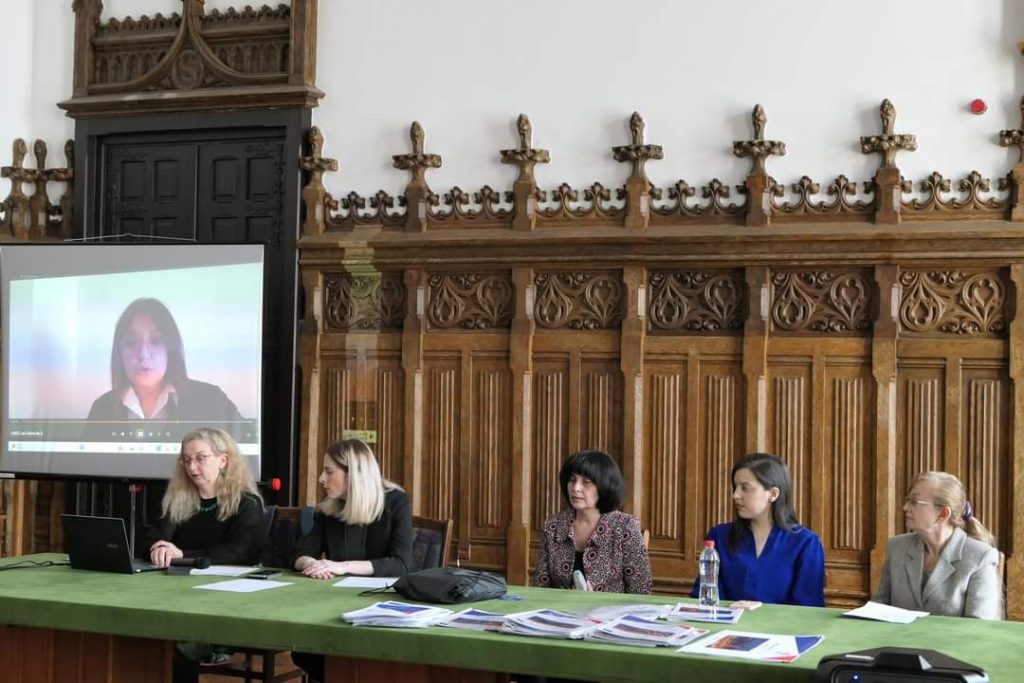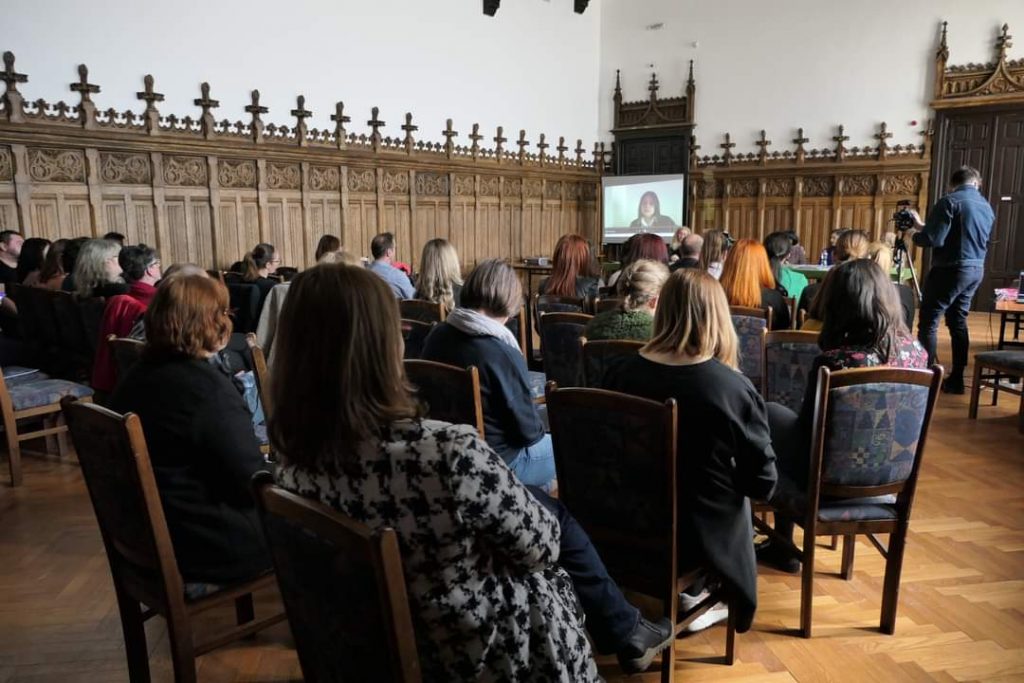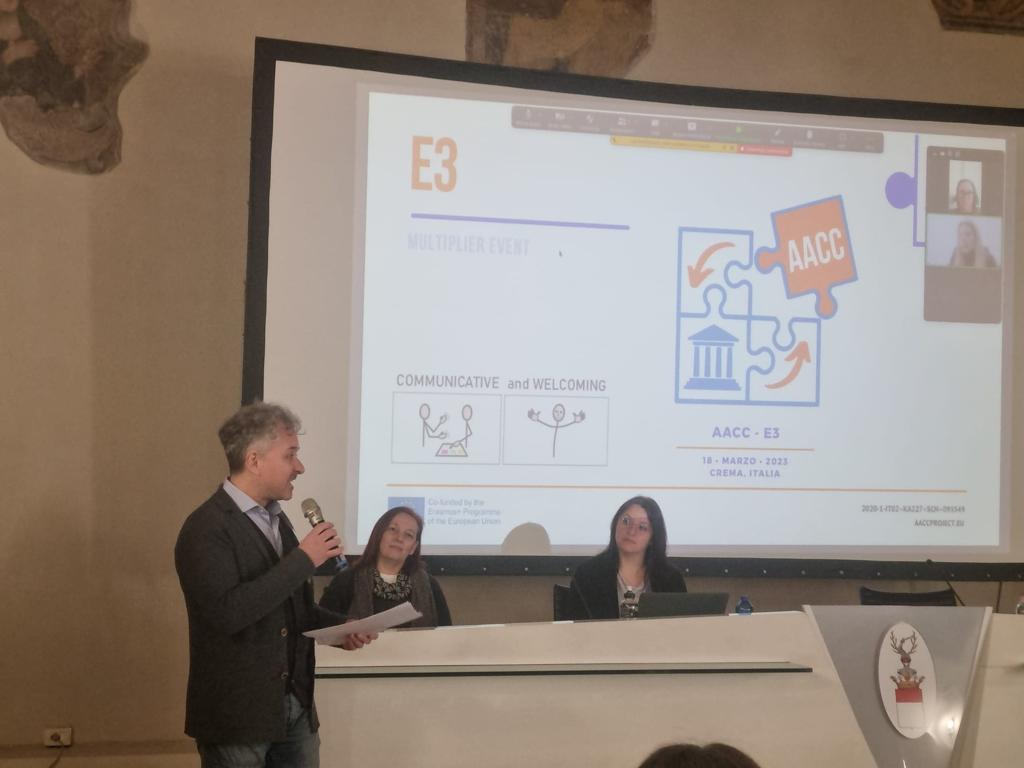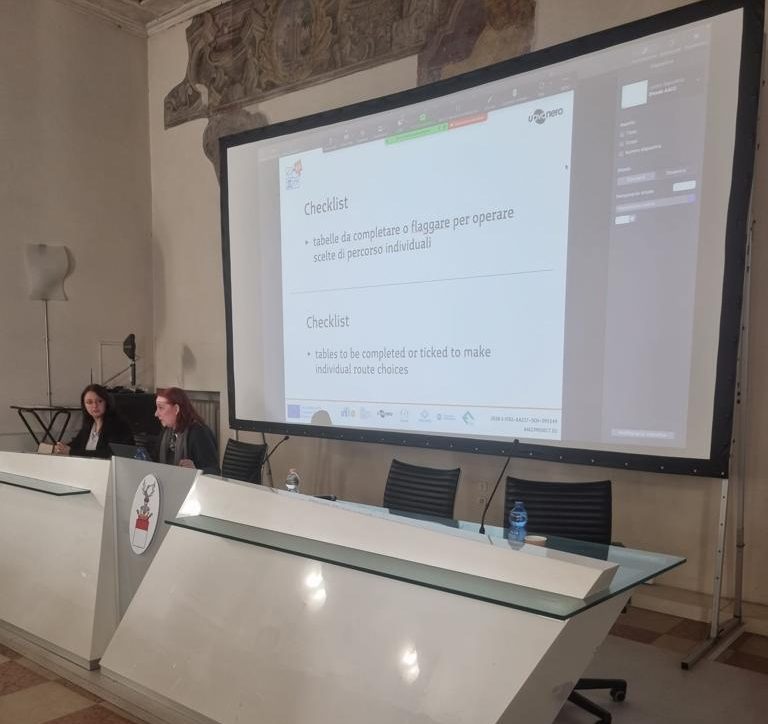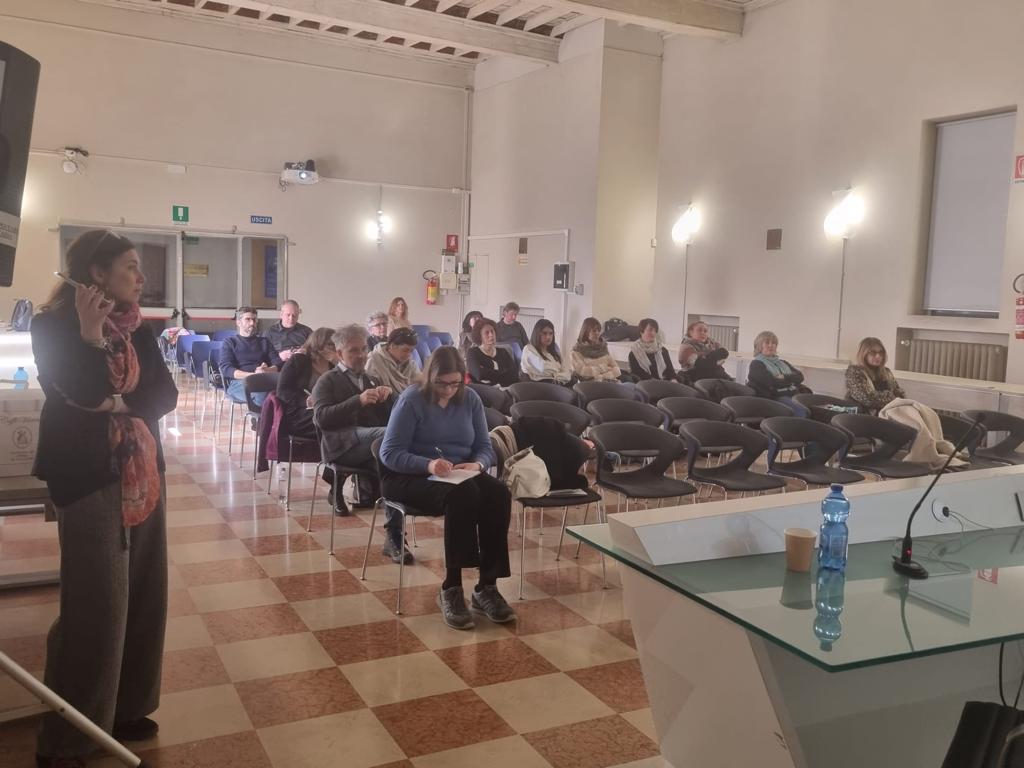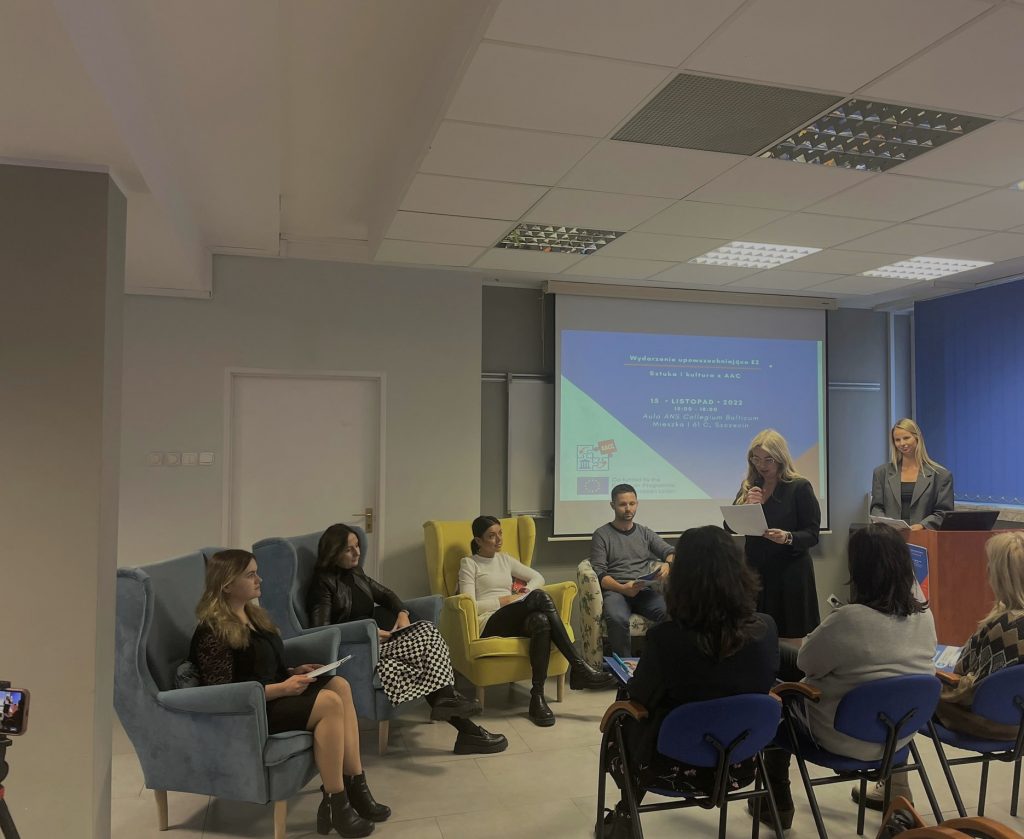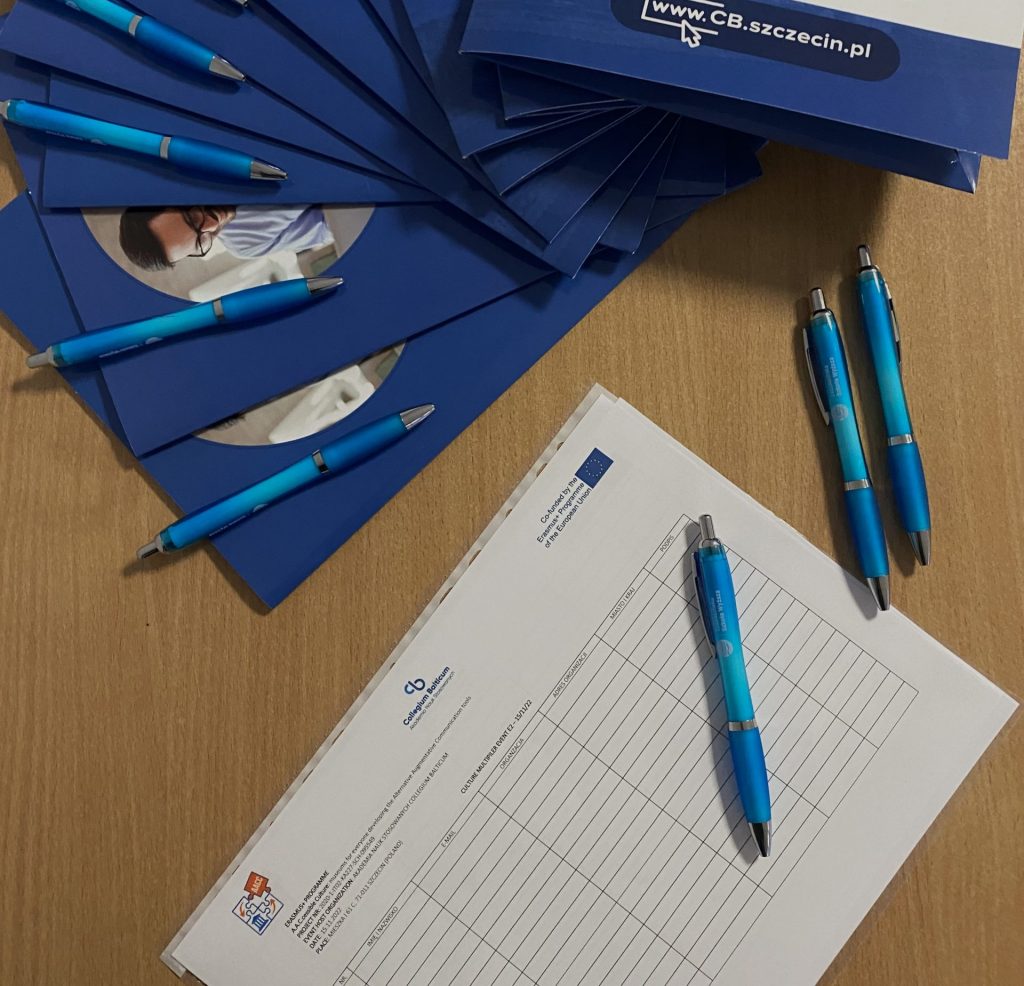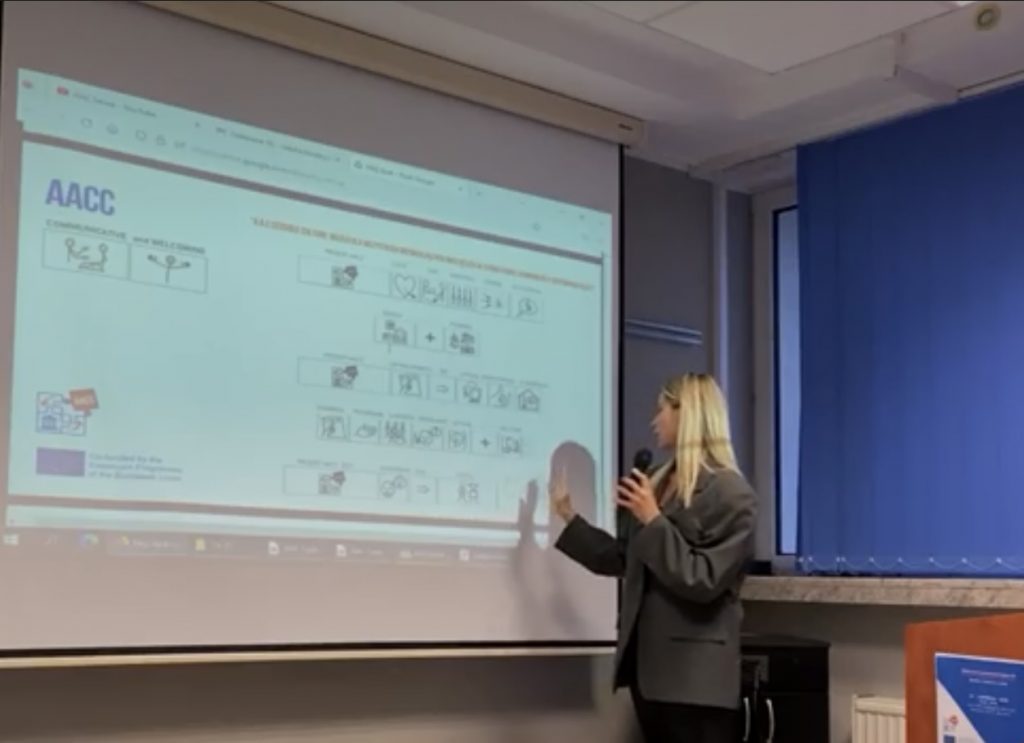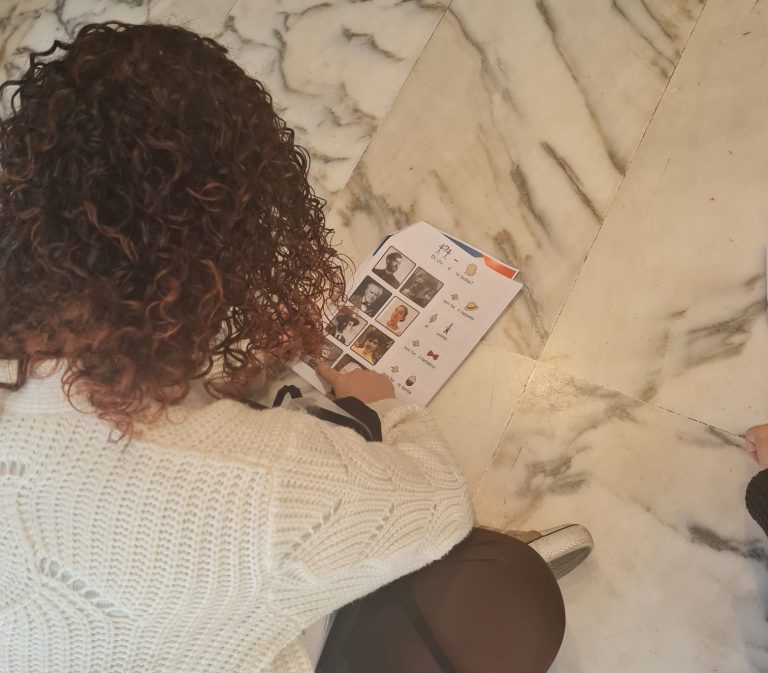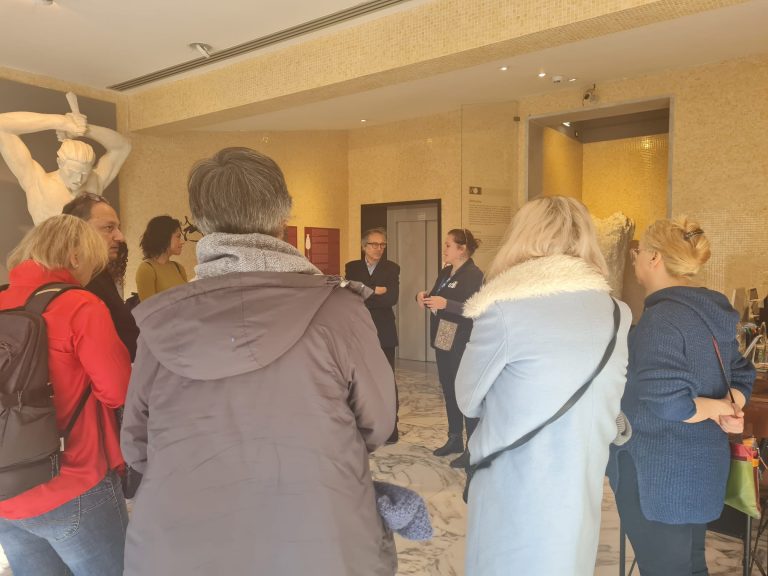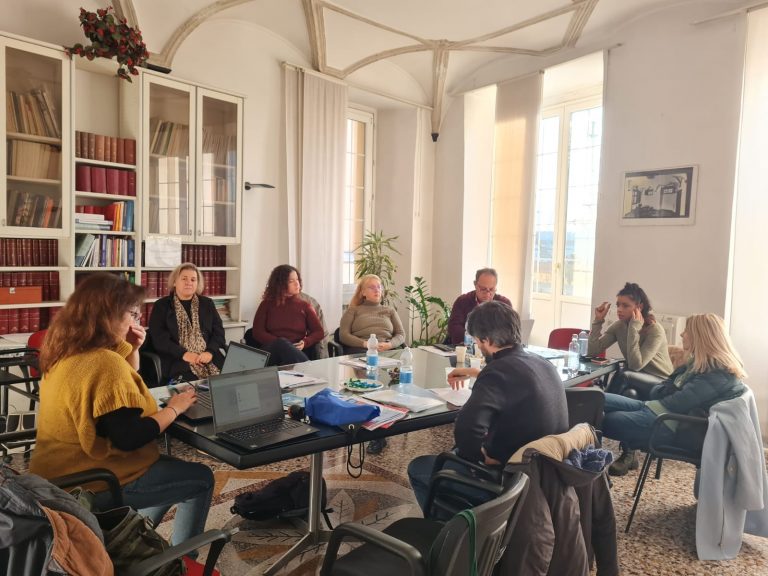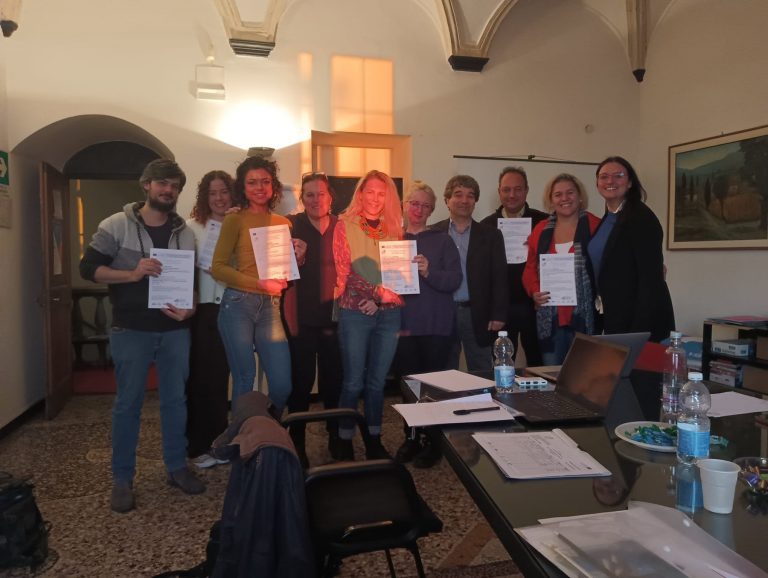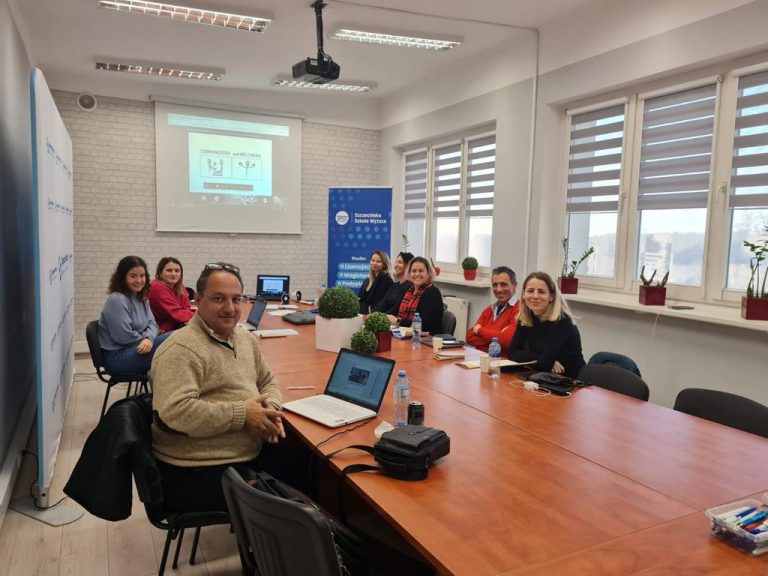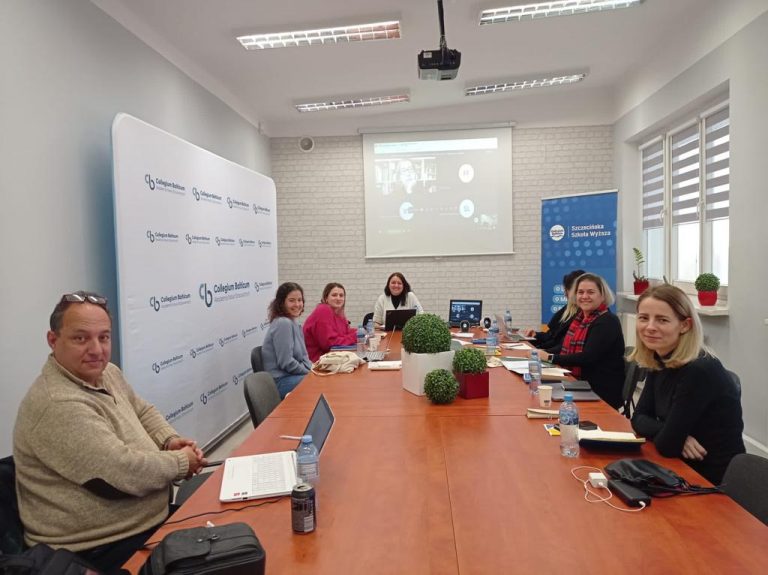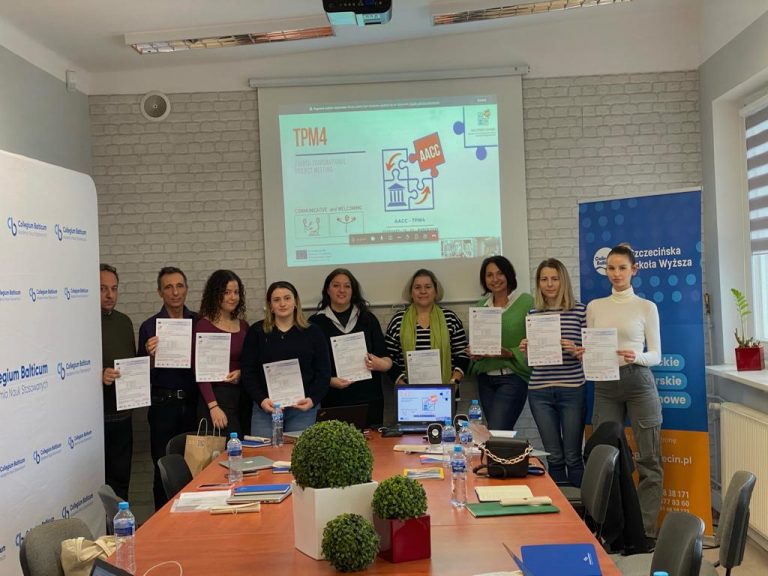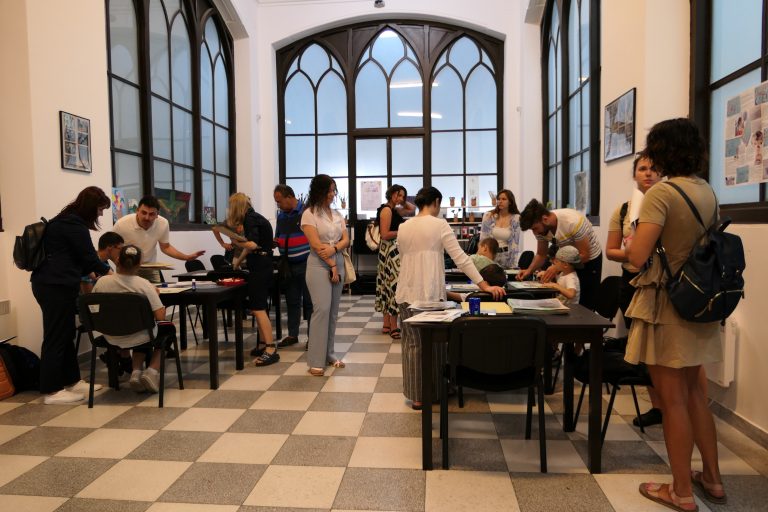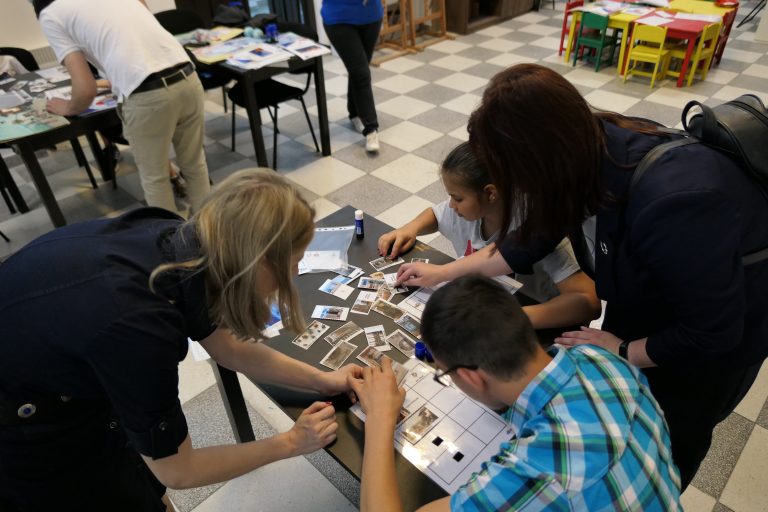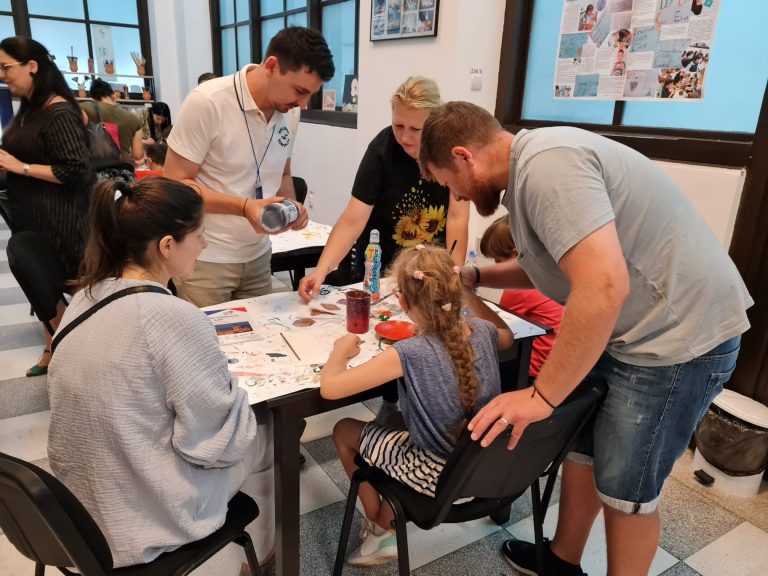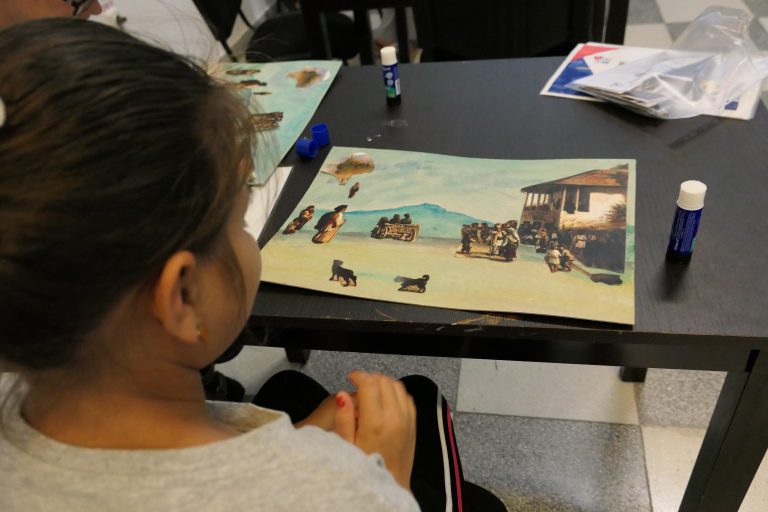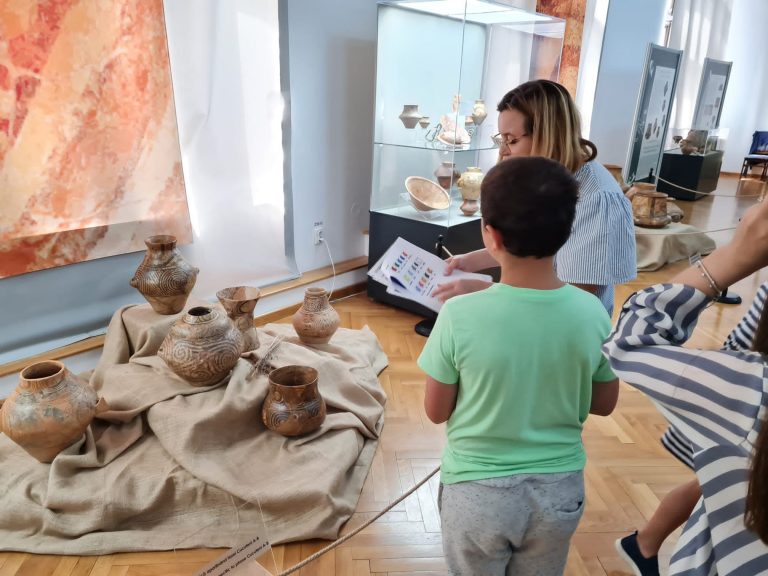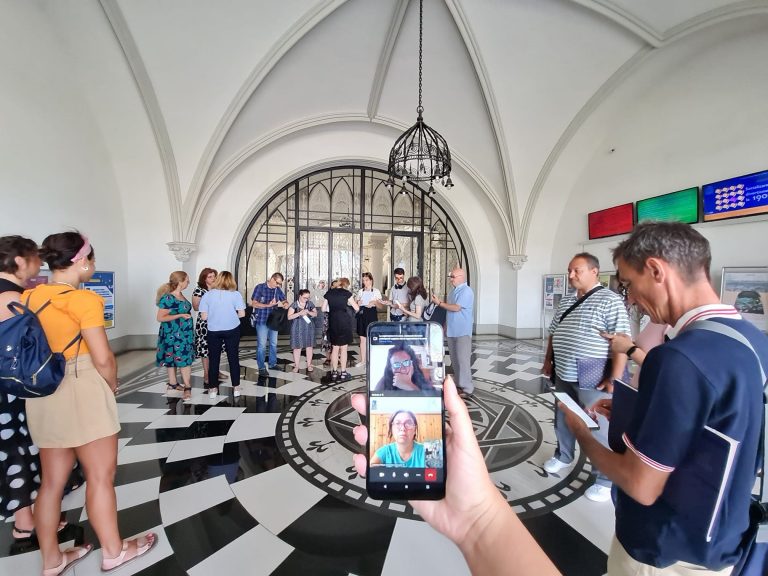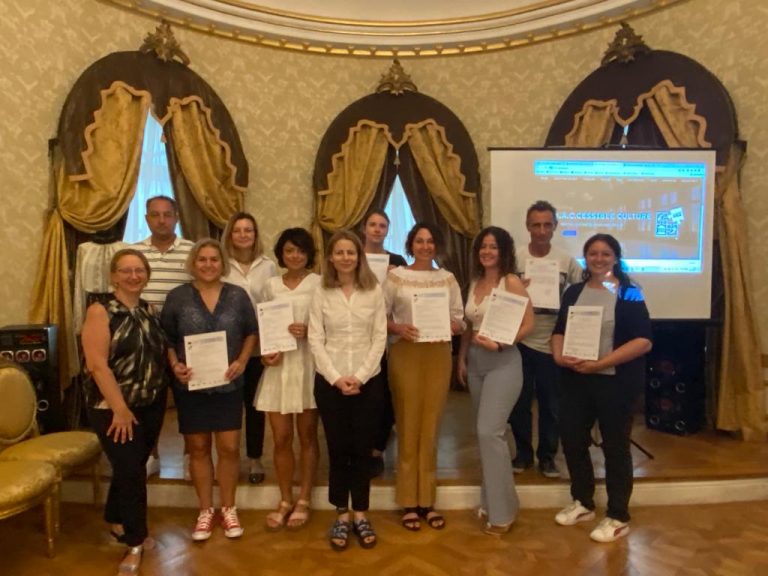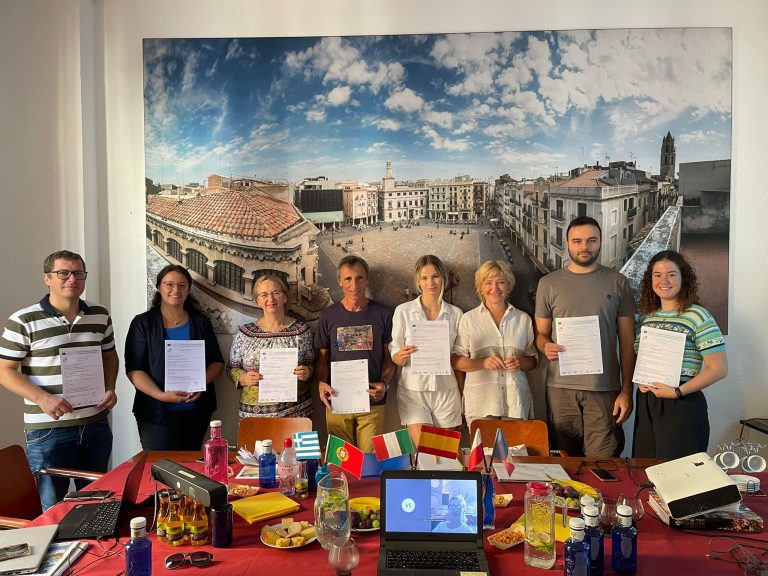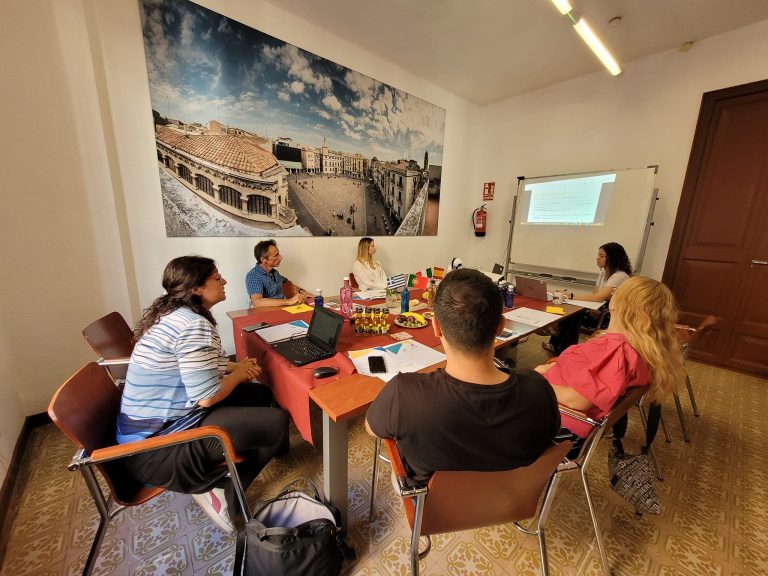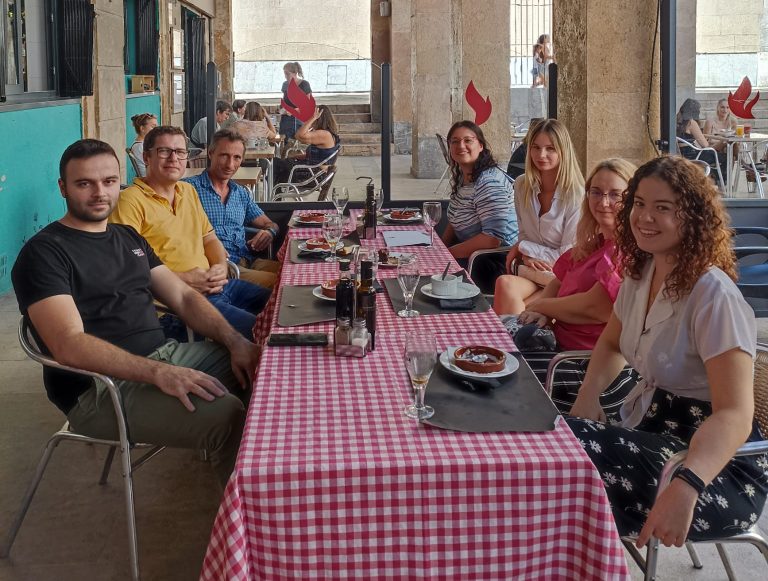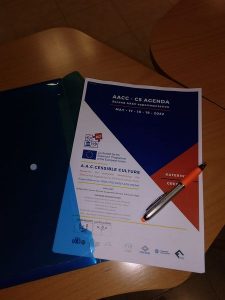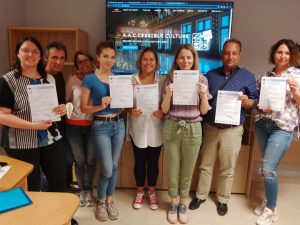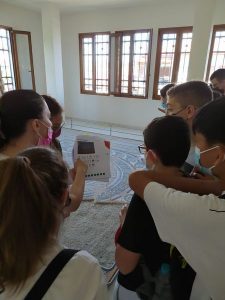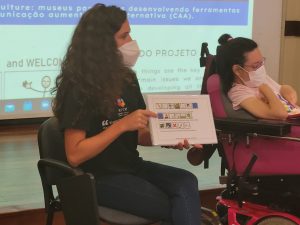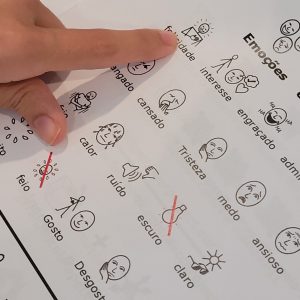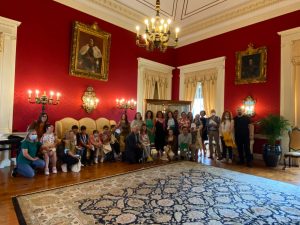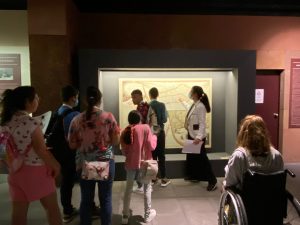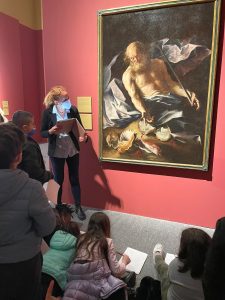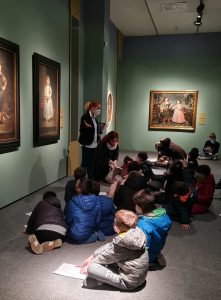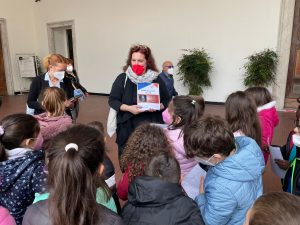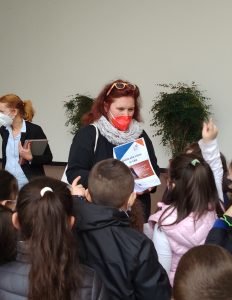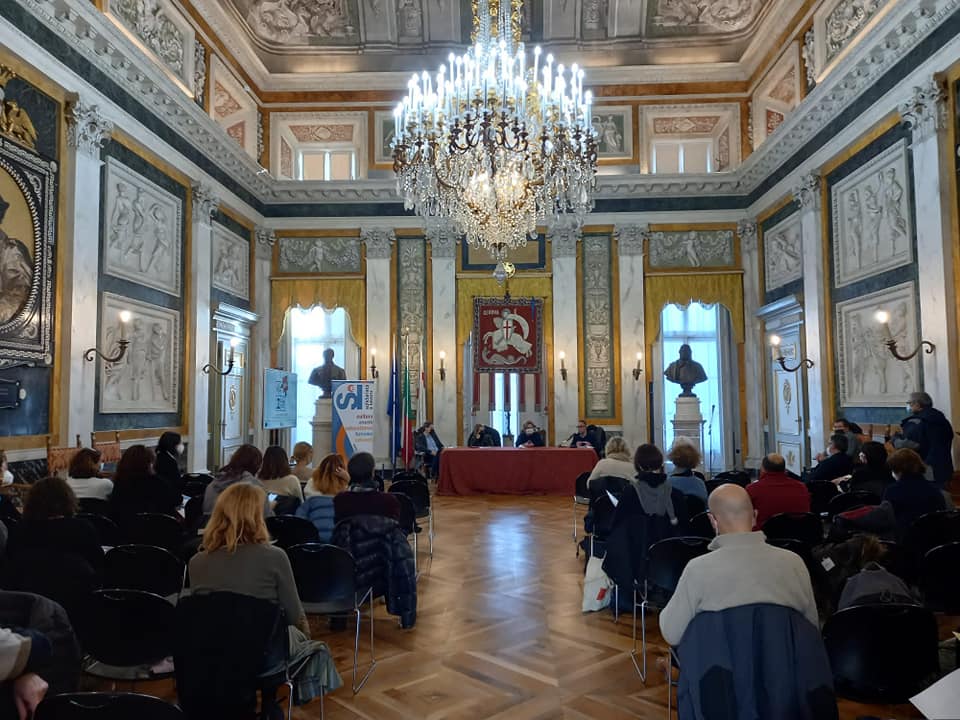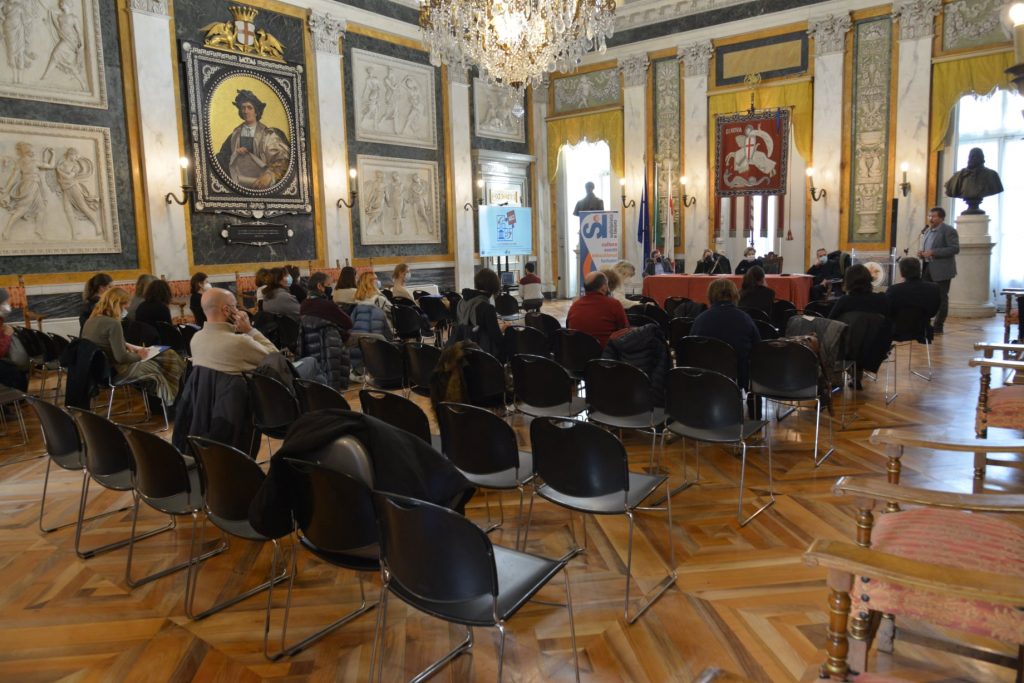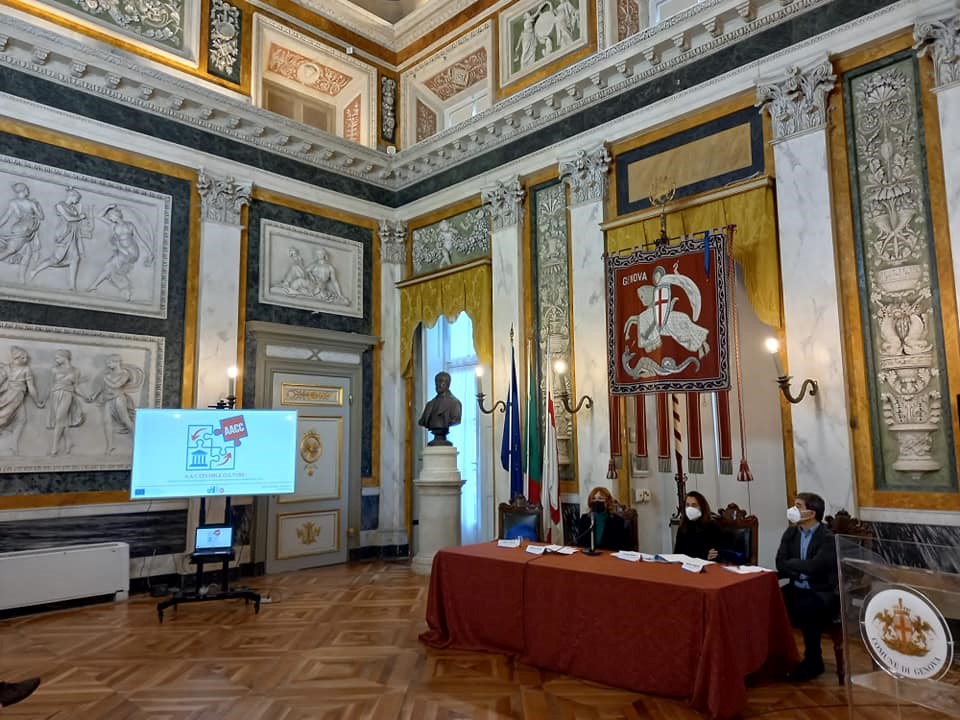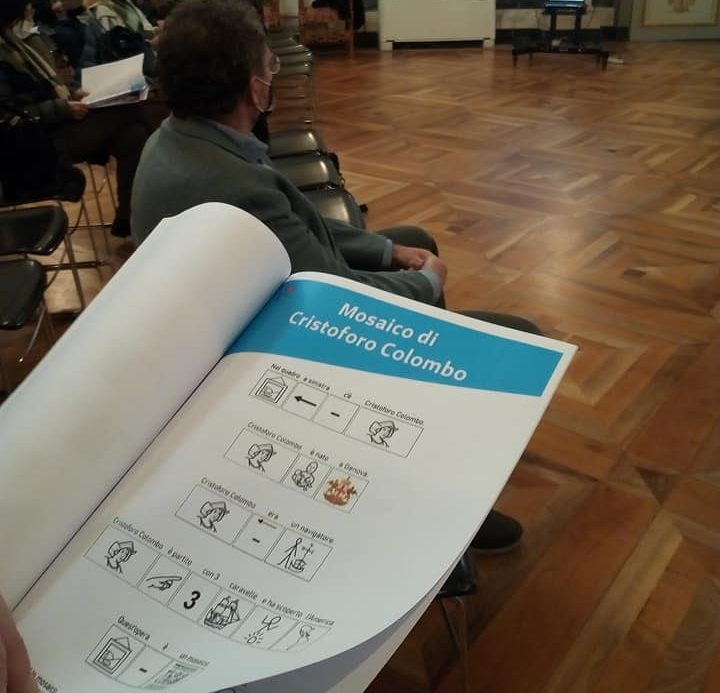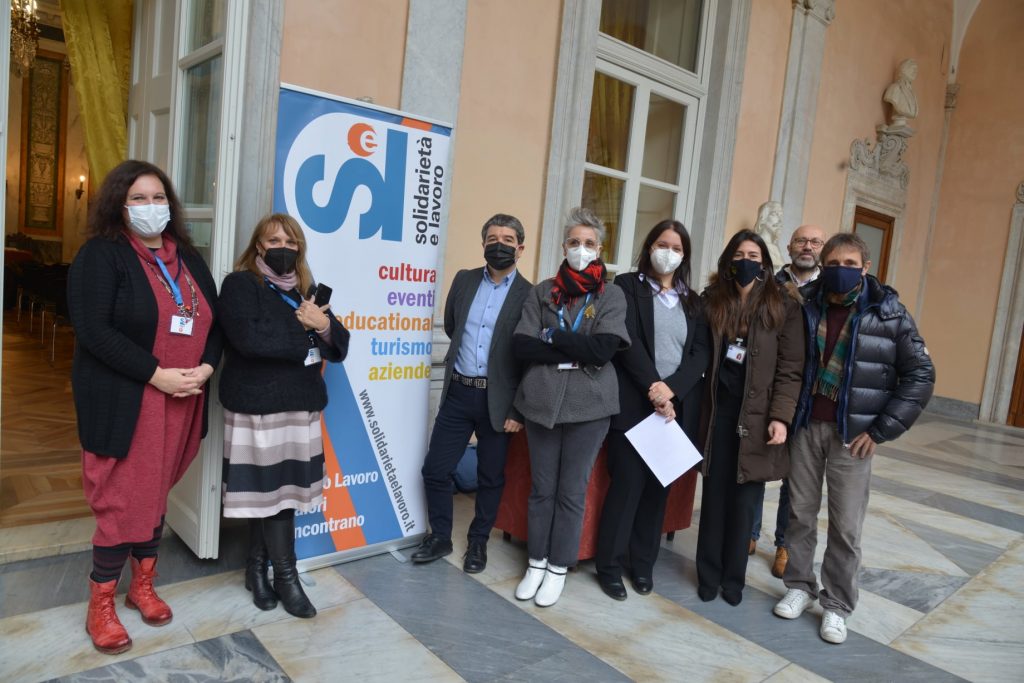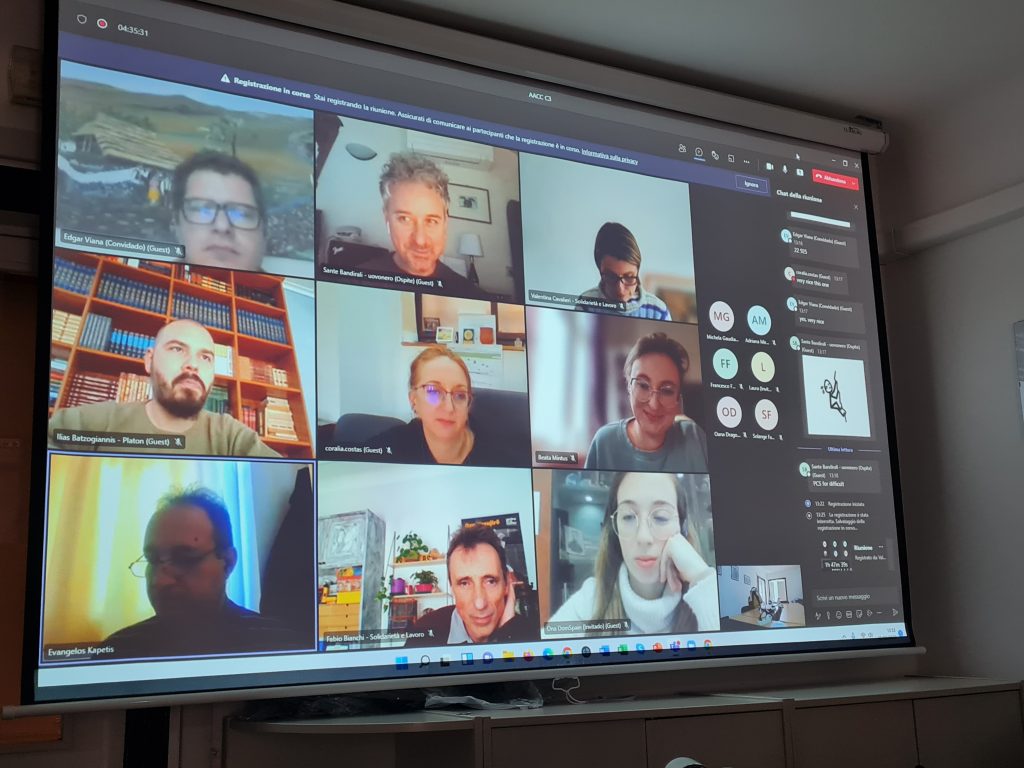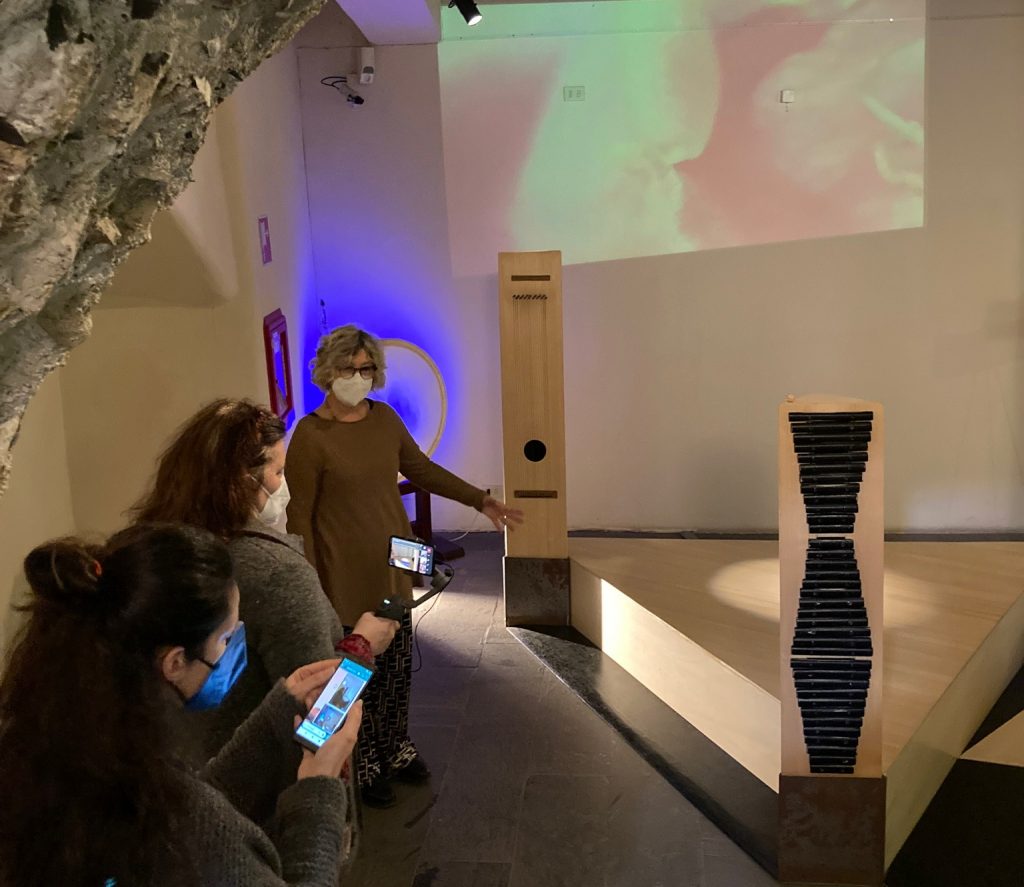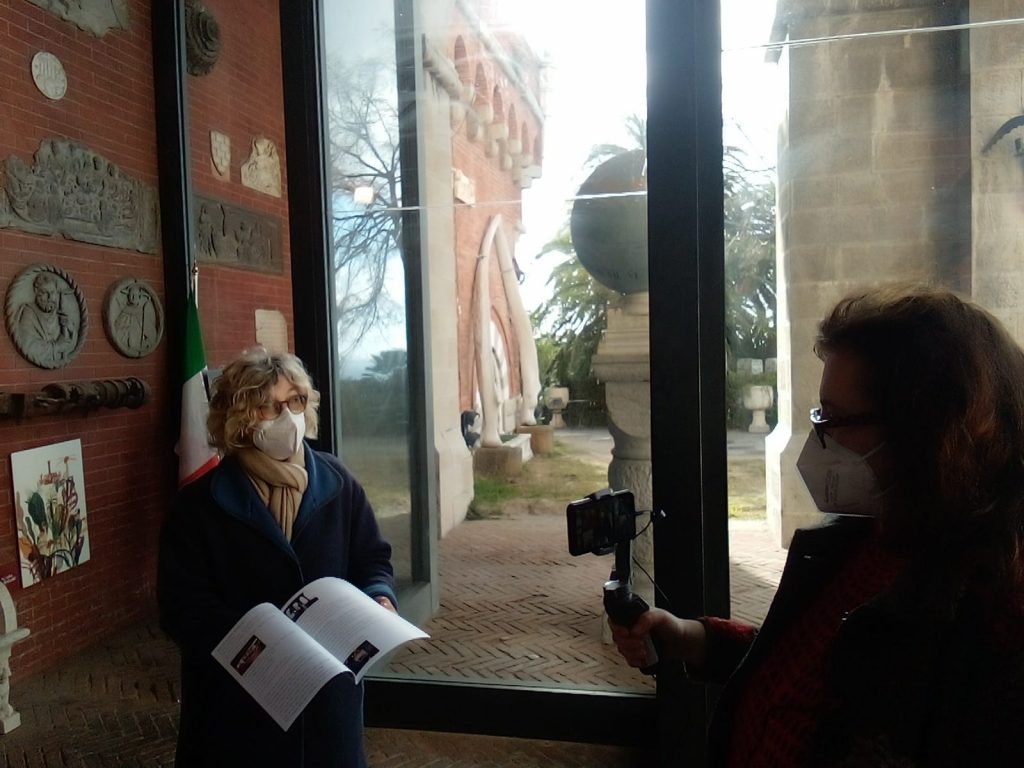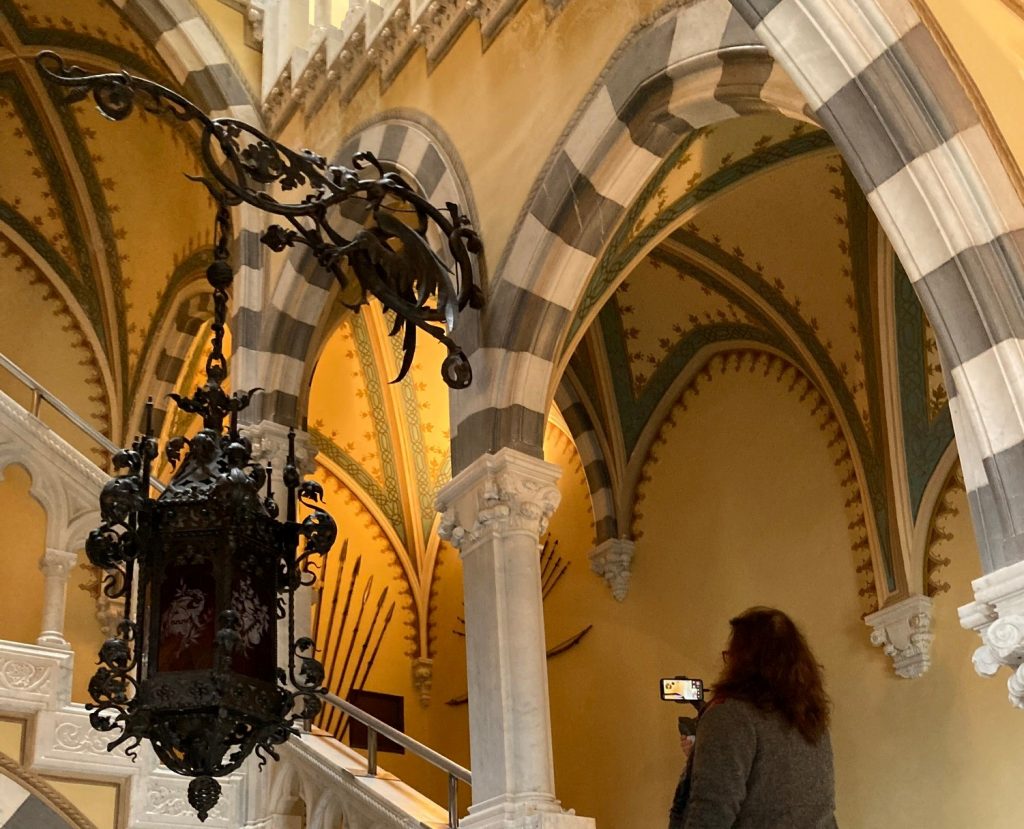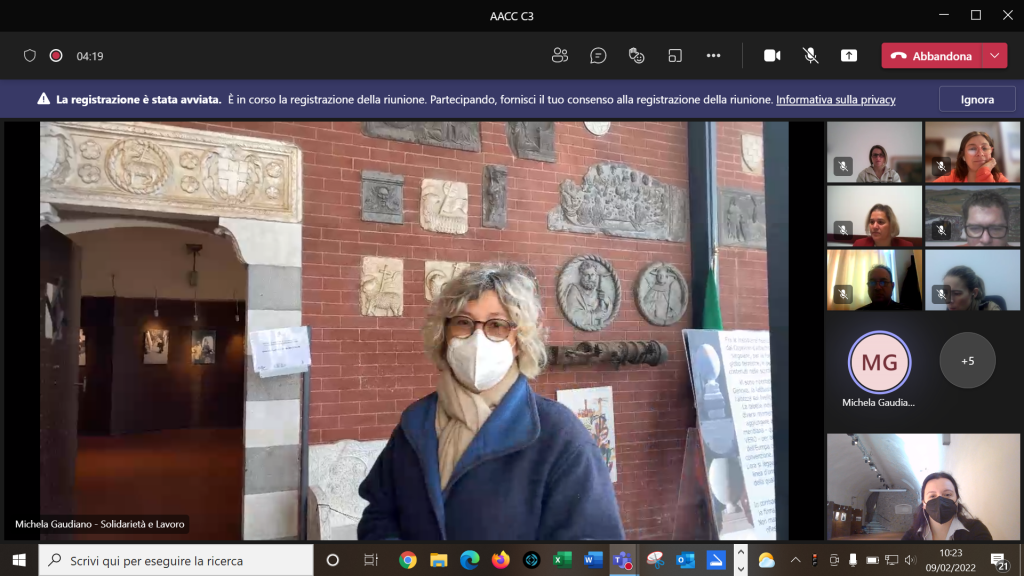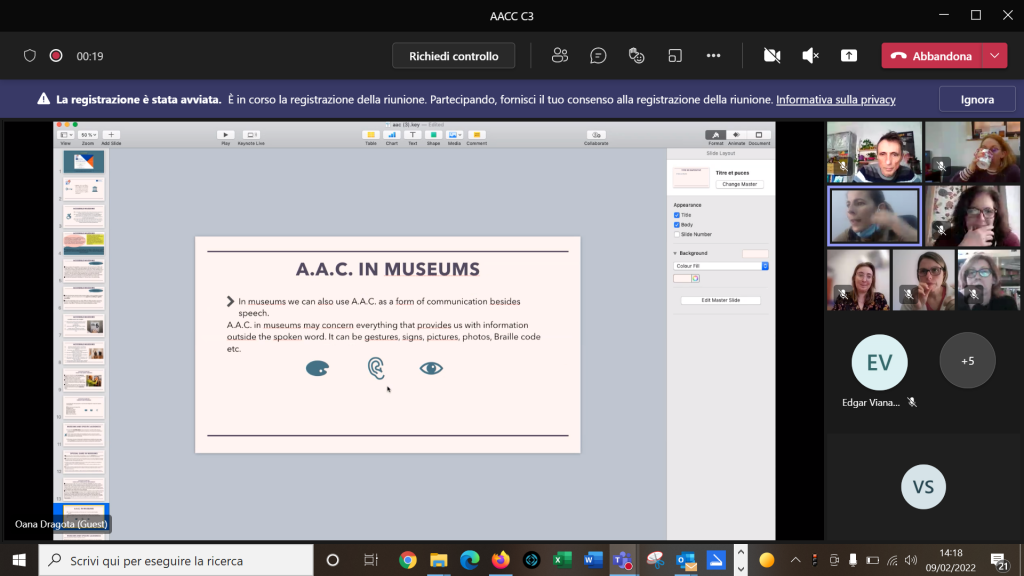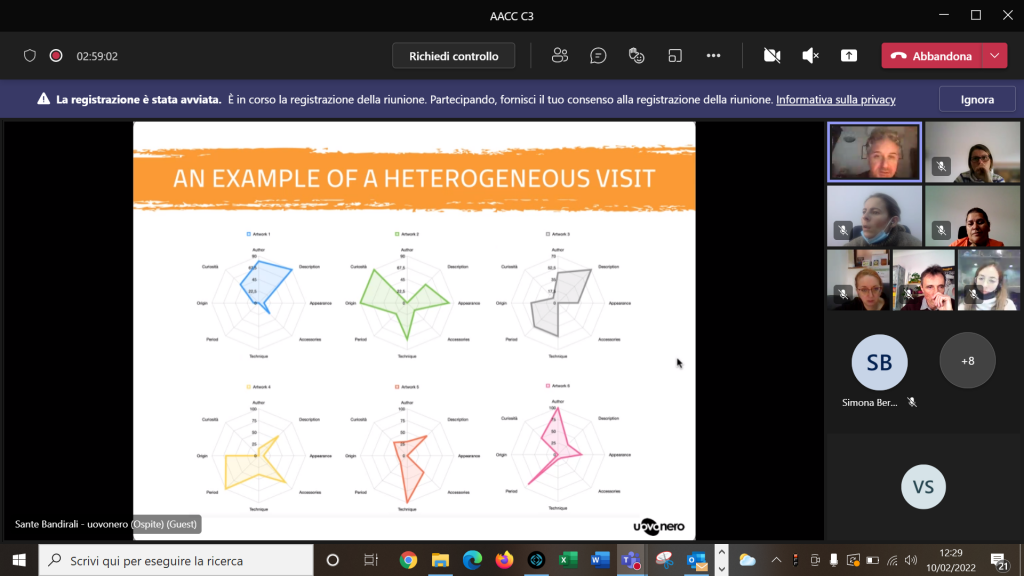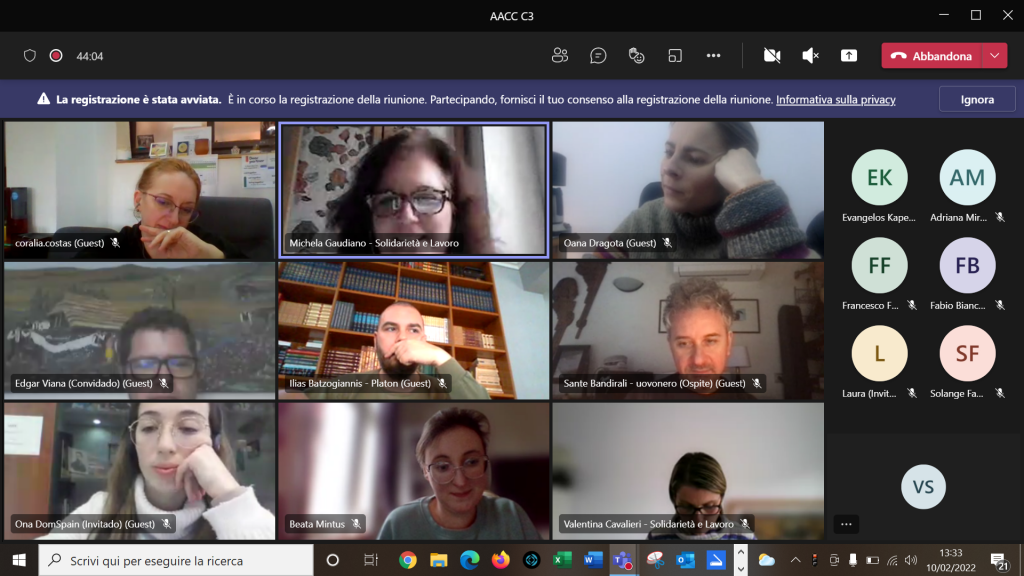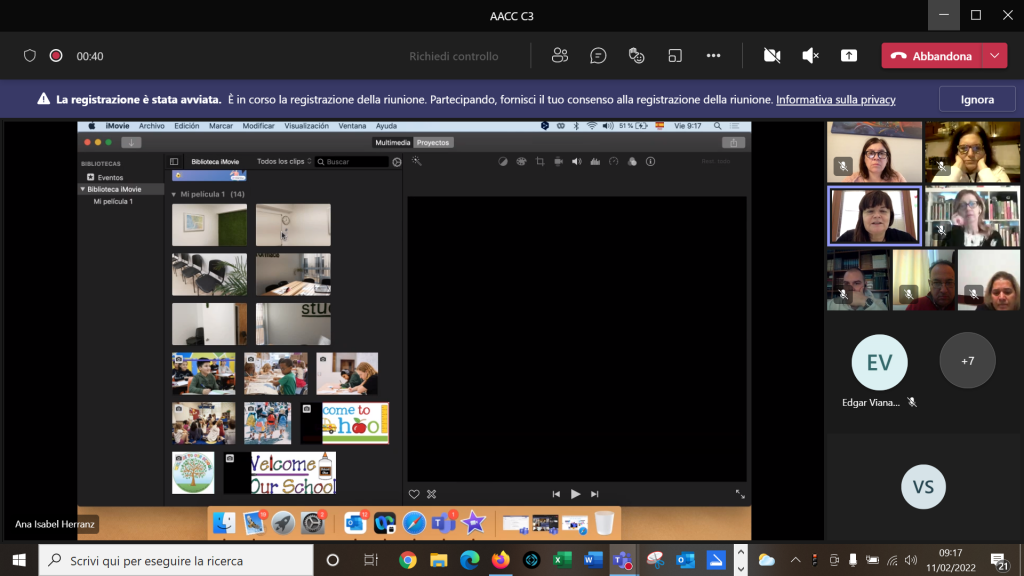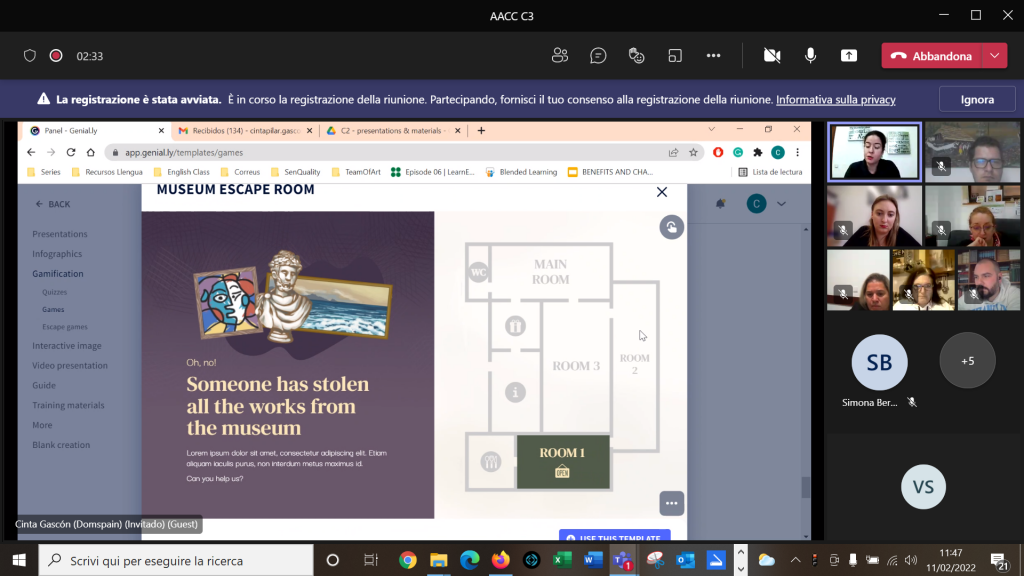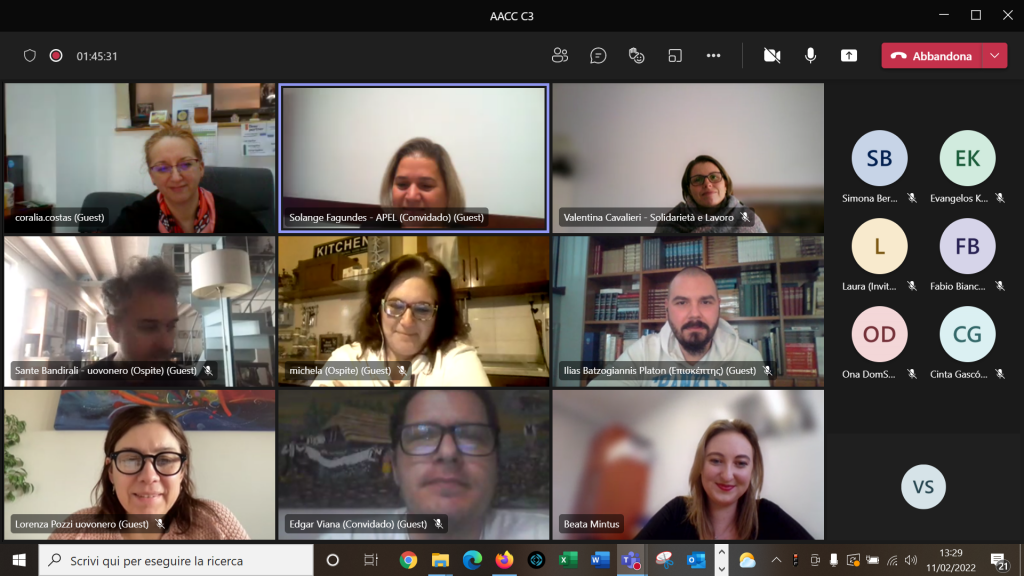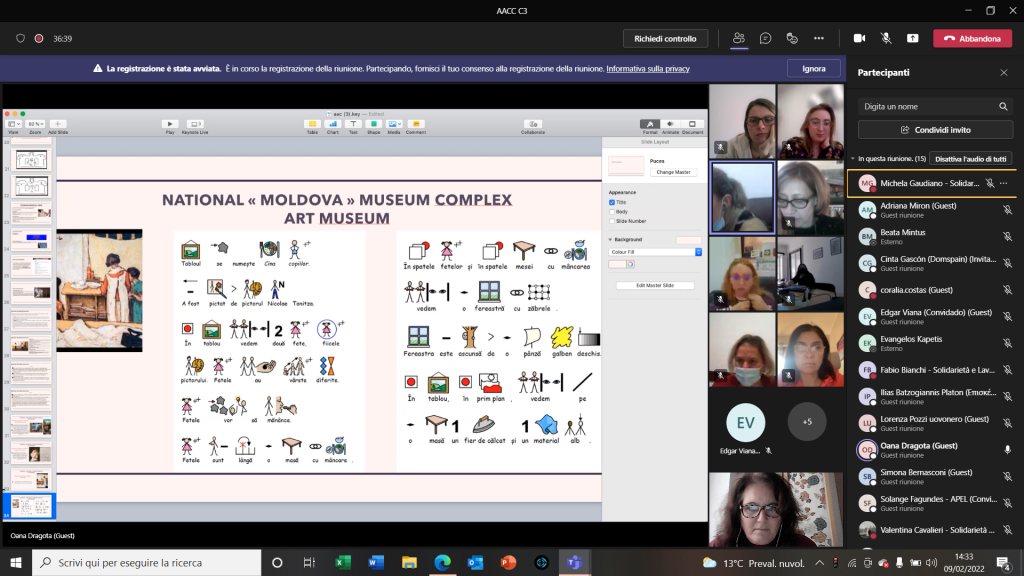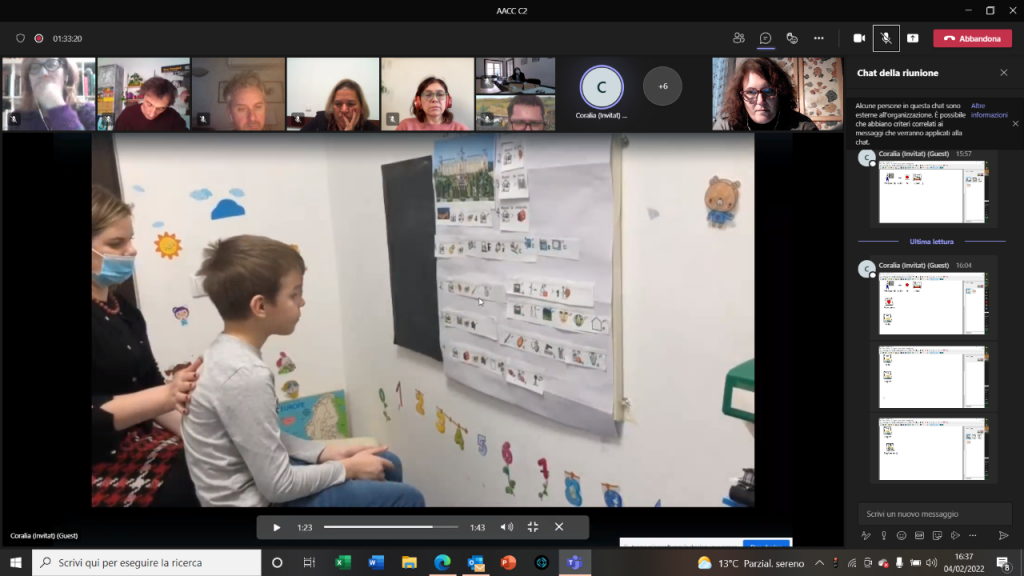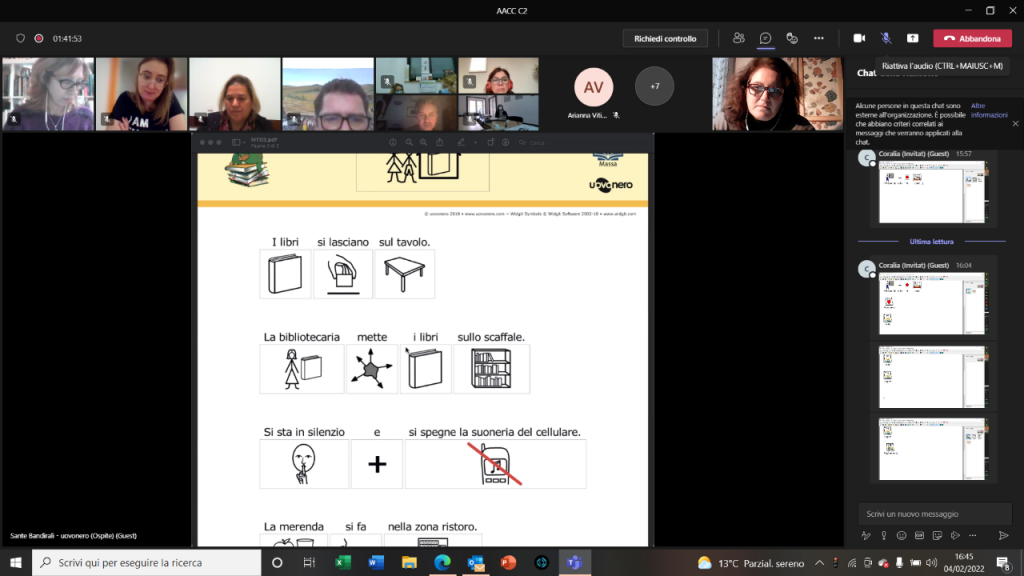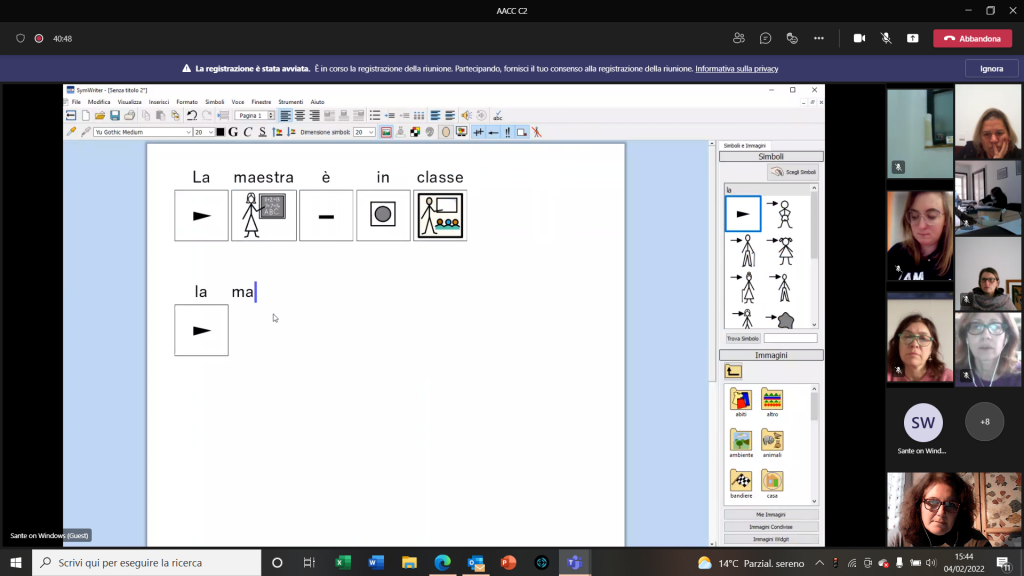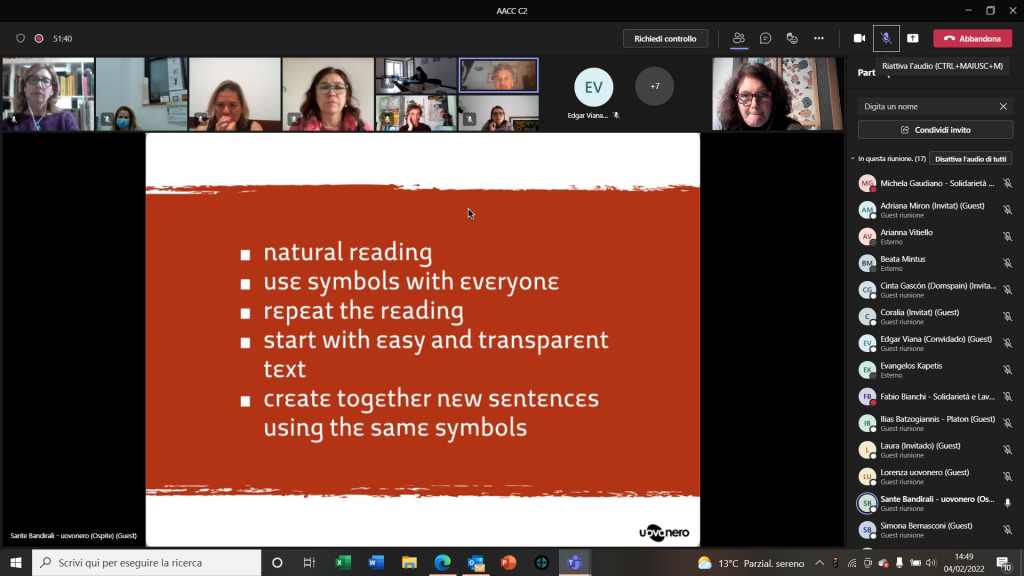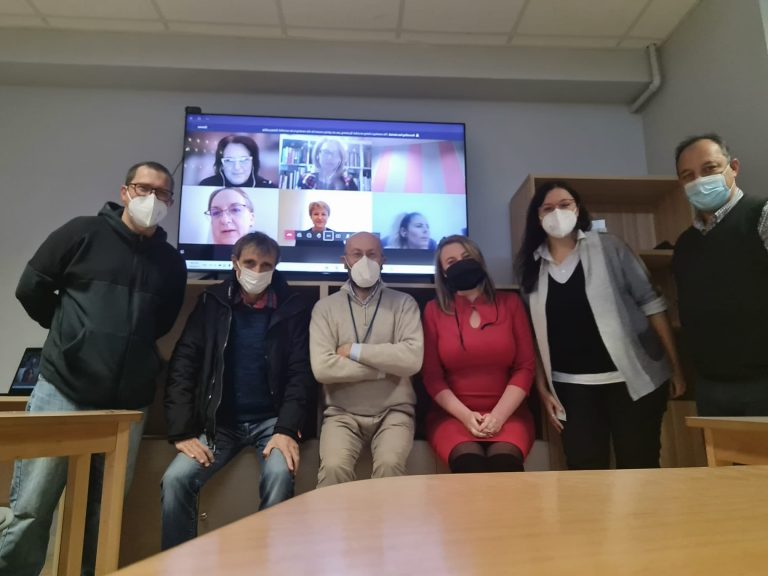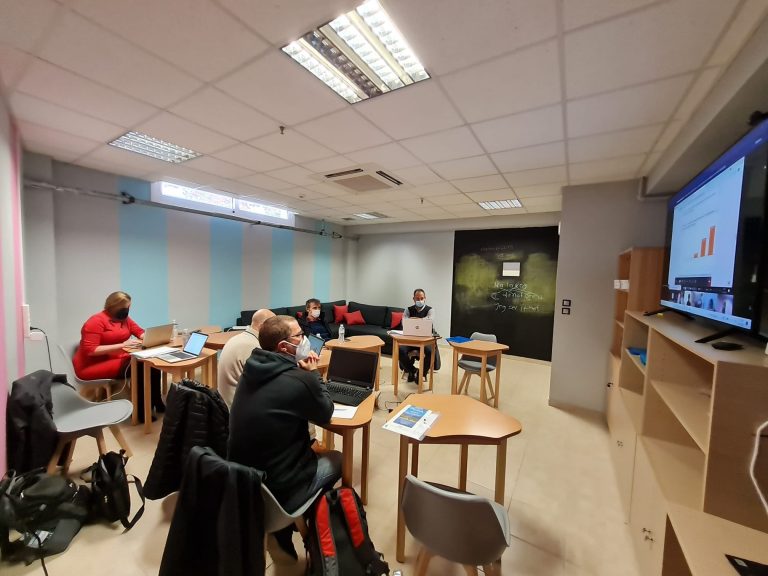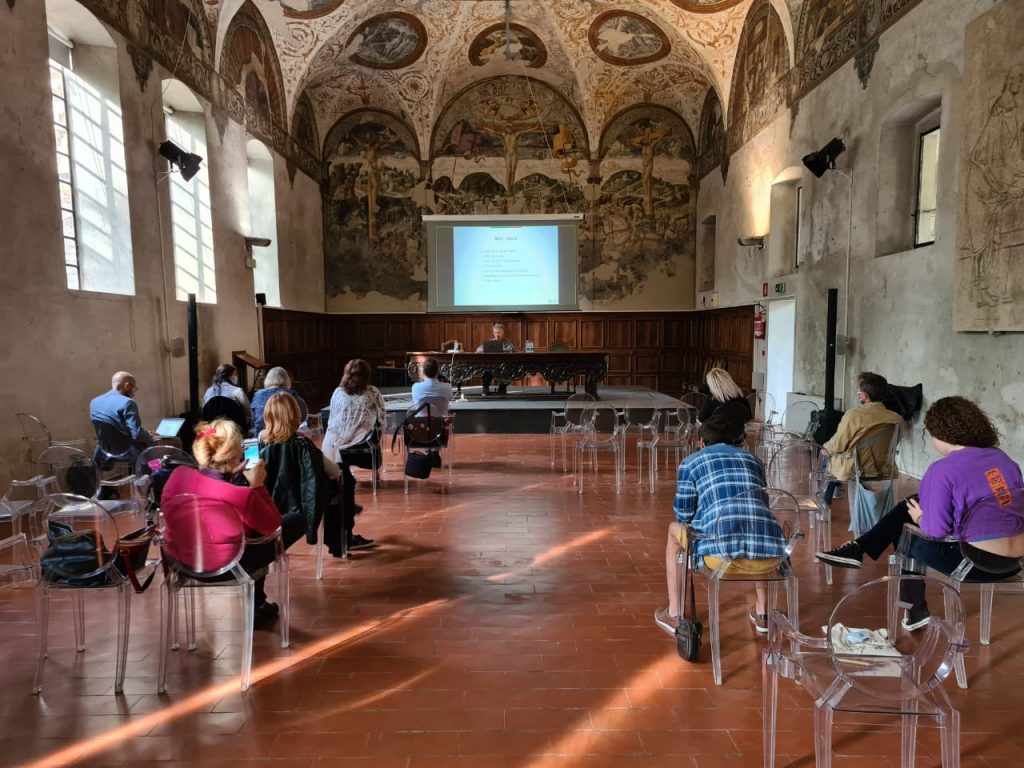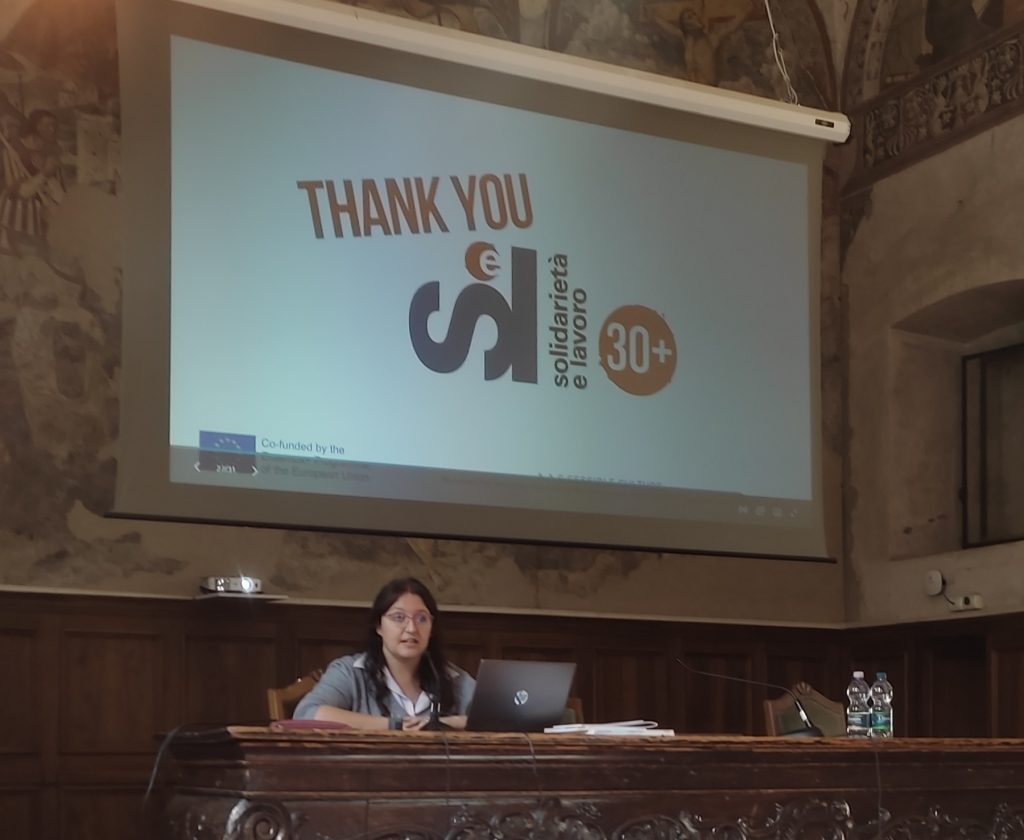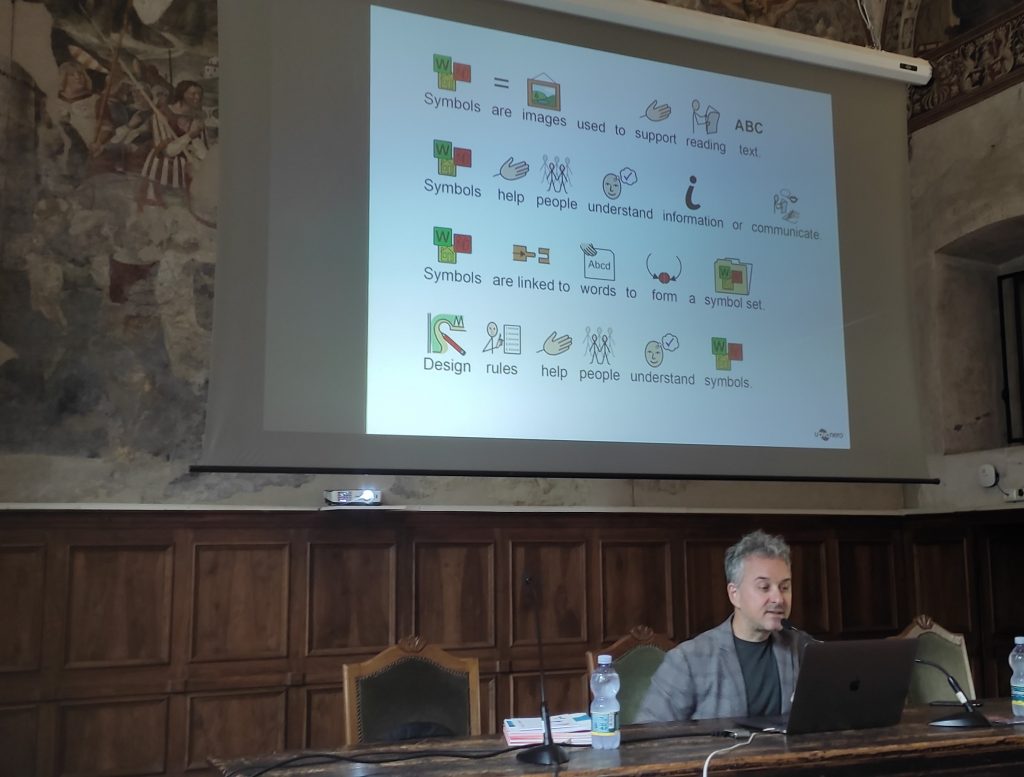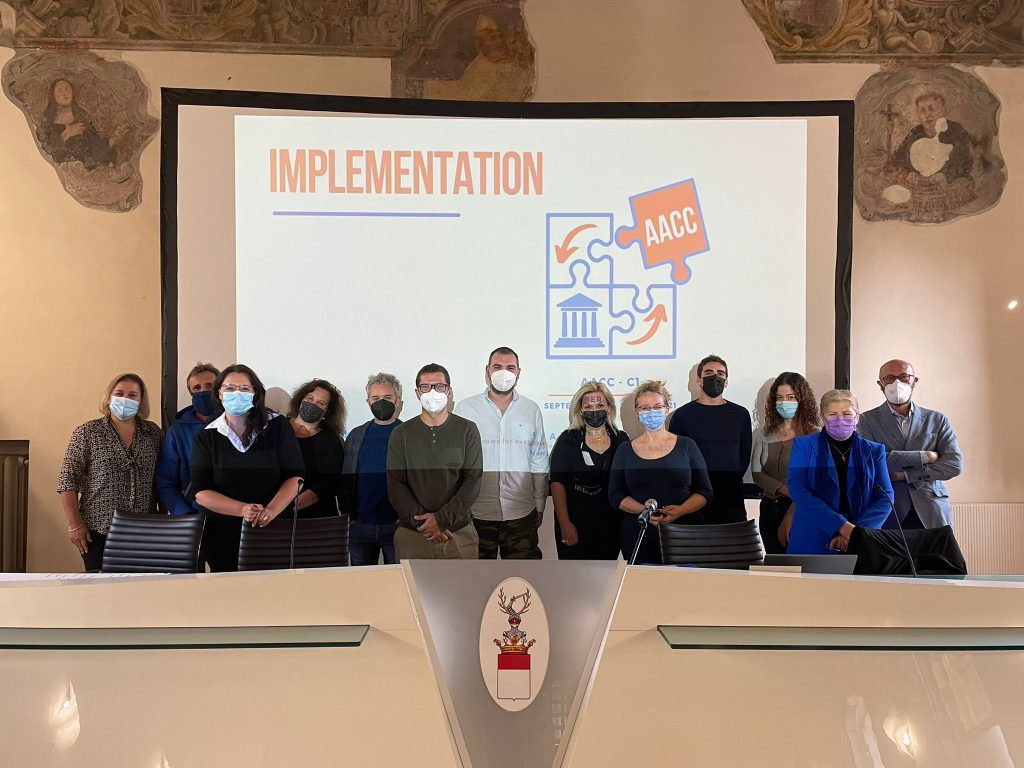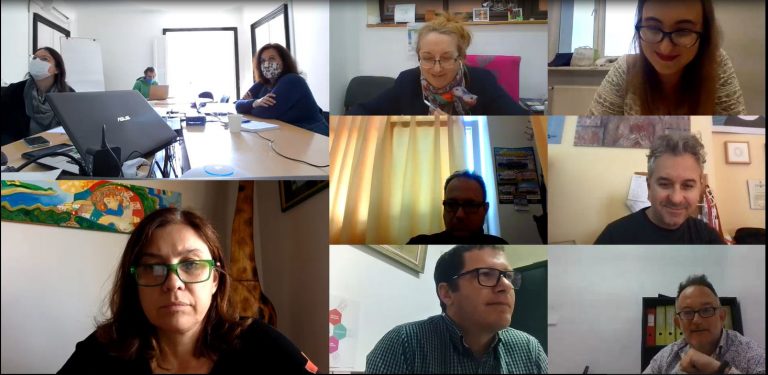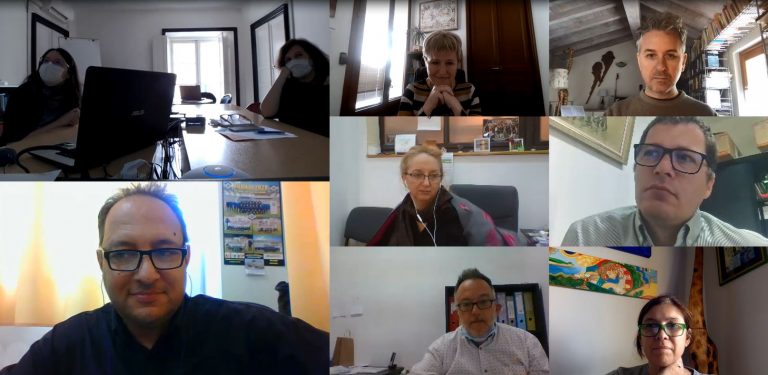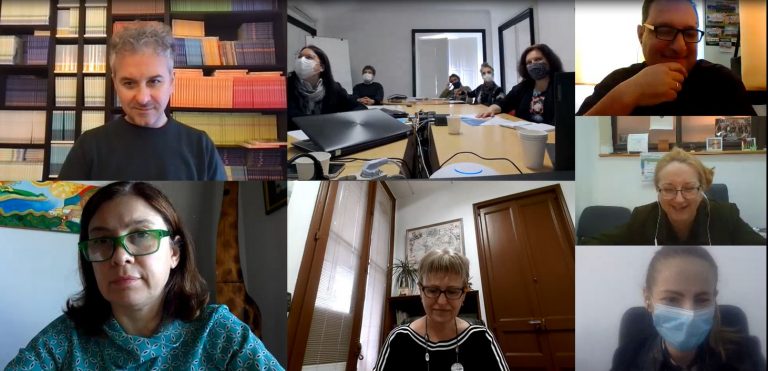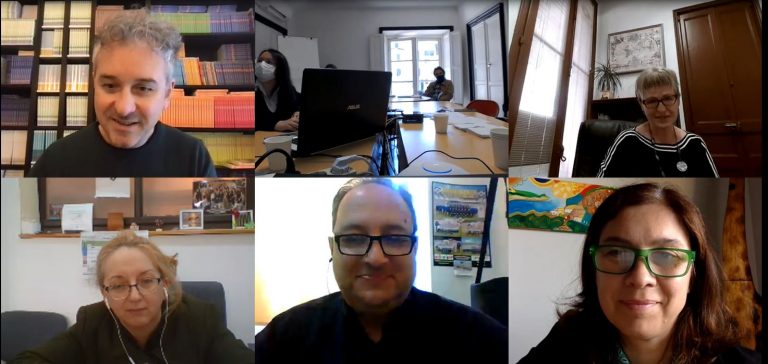Our Partners
Would you like to meet the whole team? These are the A.A.C.cessible Culture partners:
Solidarietà e Lavoro Società Cooperativa Sociale O.N.L.U.S

Solidarietà e Lavoro Società Cooperativa Sociale O.N.L.U.S. (SeL) is a type B Social Cooperative active since 1989 in the North of Italy with a consolidated experience in planning, managing, organizing, and promoting cultural and tourist services. SeL operates in museums of national importance, carrying out activities of reception and assistance, guided tours and educational workshops, room control and surveillance, ticketing, front and back office, organisational secretariat and marketing and communication activities, bookshop management. SeL works actively in the field of library activities and services and collaborates with Civic and University Libraries and Library Systems and it is also involved in designing and providing tailor-made services for companies, with global services.
SeL’s Education Area was set up in 1999 to meet the demand for cultural and educational spaces and activities by teachers and schoolchildren, both in museums and libraries. It develops didactic and cultural proposals interactively and dynamically, to offer the possibility to appreciate the historical and cultural heritage mainly to children and young people by activities in the museum or the classroom, lessons-workshops for classes, training courses for teachers, both in the presence and on-line. The philosophy of the Educational Area is to be at the service of the school, transforming the museum into a field of operation in which to experience, learn and explore.
Over the years SeL has designed, developed, and promoted, in collaboration with various cultural and social realities, significant research and innovation projects for the promotion of culture in the area: Social Hub Genova, Spazio Faber, and Dialogo Nel Buio. SeL was also involved in the operational development of the national project Open Vicoli and the European project AlterEco, an Interreg Med project that aims to implement alternative tourism strategies to improve the sustainable development of local tourism.
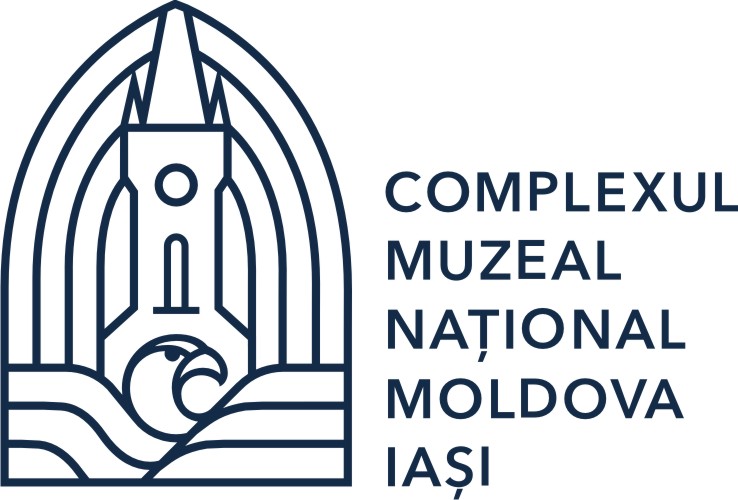
Complexul Muzeal National Moldova Iasi

MOLDOVA National Museum Complex is the largest museum organization in the eastern part of Romania. Its headquarters is in the Palace of Culture, a recently restored very famous neogothic edifice, which houses four main museums: the Art Museum of Iași, which continues the mission of the first art gallery of Romania, founded in 1860 within the first modern national Romanian university, Moldavia’s History Museum which has taken over the patrimony of the Antiques Museum founded in 1916 as part of the University of Iași, the Ethnographic Museum of Moldavia, whose core was set in 1943, as well as “Ştefan Procopiu” Science and Technique Museum, whose collections were organized starting with 1955.
Also in the Palace of Culture operates the Heritage Research Center, which has scientific investigation and restoration laboratories adapted to the different types of materials composing the exhibits: stone, ceramic, wood, metal, textiles, paper etc., and which in 2015 celebrated 40 years of existence. MOLDOVA National Museum Complex also includes in its structure several satellite museums: the Union Museum of Iași, ”Mihail Kogălniceanu” Memorial Museum of Iași, “Poni-Cernătescu” Museum of Iași, “Alexandru Ioan Cuza” Palace of Ruginoasa, the Archeological Reserve-Museum of Cucuteni and the Wine and Vineyard Museum of Hârlău.
The PR and Cultural Projects, Programs and Marketing Department is subordinated directly to the Manager of the organization and serves all museums that are part of it, coordinating and implementing communication and education events addressed to all age categories.
Uovonero

Uovonero is a publishing house born in 2010 in Crema (ITALY) specialized in inclusive, highly legible books, that promote a culture of diversity.
The main purposes of the publishing house are two: to give to all the children, included those with various kinds of reading difficulties the pleasure to read and share the same books; to spread a culture of diversity as a resource, to stimulate curiosity and acquaintance instead of fear and suspicion, through picture books, novels and essays.
Platon m.e.p.e

Platon schools http: www.platon.edu.gr and www.facebook.com/PlatonSchools/ is a modern educational institution that pursues with great interest and a creative mind the developments in the field of education; it constantly sets new goals holding at the same time an outstanding position in the educational scene. Through the use of the most up-to-date facilities, a diverse curriculum, experienced and skilled teaching staff and most importantly, through consistency on principles and respect towards pupils and parents, the school has been striving for the accomplished education of its pupils.
Through the newly founded Research and Innovation Department, Platon school pursues its participation in international programs of design, implementation and assessment of innovative pedagogical methods and materials. The Centre of Research and Innovation actively involves itself in the design of advanced educational materials, both conventional and electronic. The main aim is the exploitation of state-of-the-art technologies in the education process so as to enhance teaching and learning. The tools developed within the framework of educational programs are the result of cooperation and joint efforts amongst specialists from a variety of academic fields, with a major focus on information technology, teaching and learning studies.
Platon School has also been a licensed Long life Education Centre and is running its own adult education projects.
DomSpain SLU

DomSpain (DS Formacio) is a Training and Consulting Company active on a national and international level.
It offers a variety of services to the public and private sector of Spain and actively participates in international schemes through a well-established network of partners abroad. DomSpain is engaged in the EU Pact for Skills.
The Training department of DomSpain develops educational programmes in four main directions:
- courses/workshops for adult learners, including foreign languages, ICT, and personal growth classes
- VET: ICT, foreign languages, employability, work-based learning
- trainings for educators focusing on improving foreign language competences, use of digital tools and new teaching methods, blended learning
- extracurricular activities for school children and parents, including foreign languages, robotics, coding, and internet safety
The courses and trainings are implemented in our own premises as well as at 10 civic centres and 5 primary and secondary schools of the Tarragona province. We employ 40 educators and count with around 1400 students each academic year.
In the ICT field, DomSpain has acquired experience through many years of protection of informatics infrastructures to offer to organizations, businesses, public bodies and other entities integral solutions, which help them guarantee the cybernetic security. DomSpain provides guidance and support to entities such as educational centres, public bodies, social enterprises, and NGOs in digitalising of their internal working processes.
Also, DomSpain has a highly qualified team of information technology that has implemented various national and international projects, which included the development of educational platforms. DomSpain is a member of the International E-Learning Association, an international network of e-learning professionals, researchers, and students.
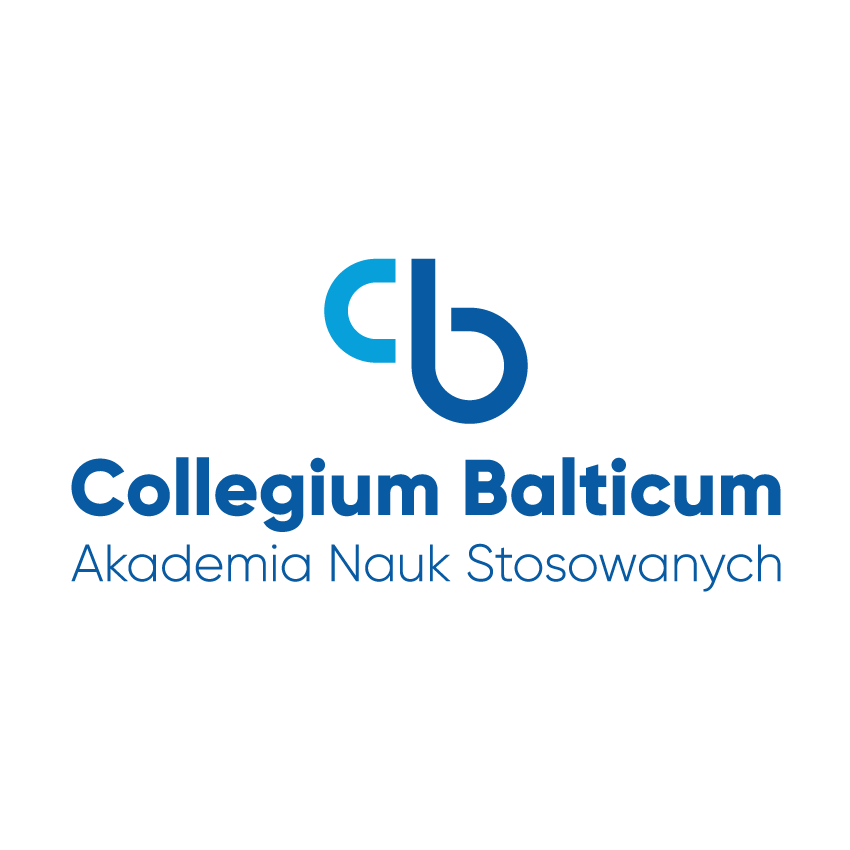
Collegium Balticum - Akademia Nauk Stosowanych z siedzibą w Szczecinie
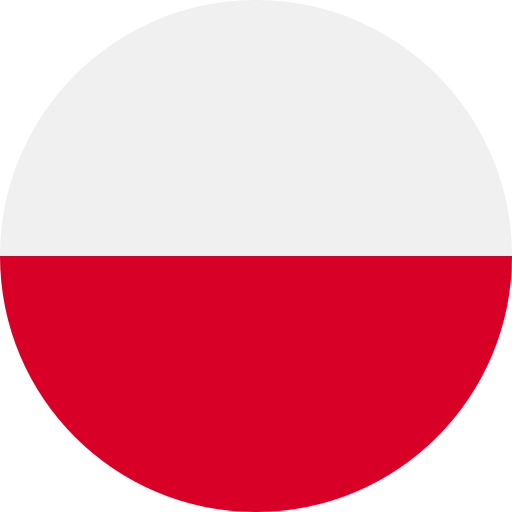
SZCZECIŃSKA SZKOŁA WYŻSZA COLLEGIUM BALTICUM founded in 2000 is continuously ranked as one of the best private universities in northern Poland. It is characterized by great human capital and huge development potential. School authorities have managed to build an institution that gives its students a solid education and thus a great start to their professional life. It is desired to provide young adults with knowledge comprising many fields so that they can receive an interdisciplinary education providing them with a better chance on the difficult labor market both in Poland and internationally. Current educational offer includes following faculties: educational science, dietetics, national security, IT at BA, MA levels as well as post-graduate studies in teaching methodology, business, management. A significant part of research work is the dissemination of the institution’s output and the exchange of experiences through conferences and seminars.
Institution’s mission is to provide excellence in education as well as attractiveness and marketability of proposed programs. Educational offer is constantly adjust to requirements of the market. It ensures the development of the intellectual potential of students and shapes their interpersonal, leadership, teamwork, and problem solving skills. It develops discipline, creative thinking, effectiveness, flexibility and entrepreneurship. We create on our university Cooperation with Business Center because we believe that only cooperation science with business is the most effective.
Collegium Balticum is situated in western Poland, in city of Szczecin that presently displays a growth potential and splendid prospects of becoming attractive to various investors, although the employment rate is 7,6% in the city and 13,1% in whole Westpomeranian region. Moreover, Szczecin is an important research center that enjoy good reputation in the world. Its immense scientific potential exerts direct influence on science development in the country.
Collegium Balticum plays an important role on local educational market in terms of additional thematic courses for disadvantaged groups i.e people from socially and economically disadvantaged areas, unqualified adults and others.
Institution has around 30 students with different impairment.
Collegium Balticum intention is also to cooperate with local authorities in order to provide thematic workshops and seminars and to attract target groups.
When it comes to project management, administration and dissemination Collegium Balticum has a great experience in European educational projects. Institution participated or is participating in different international projects.
APEL – Associação Promotora do Ensino Livre

The Escola da APEL school (Associação Promotora do Ensino Livre), catholic school, was founded on July 21, 1978, but it only started its activity on October 1, 1978. It was created, in the mid-70s, to respond to the urgent need for the existence of a private education establishment of complementary level, it is currently a secondary school, where students who finished the 3rd basic cycle of education can continue to appoint for private education.
It is a non-profit legal person, recognized as public utility, with pedagogical parallelism, accredited and covered by the Law of Patronage.
Different in the options, Excellent in the solutions! Educational quality in a Single Shift.
Initially the Escola da APEL school was only dedicated to the general courses for further education; currently it also develops its activity in the professional slope taking into consideration the young people of Madeira Island who are not oriented for higher education, and choose to enter the labour market, considering as well, the constant adaptation to the demands of the labour market.
The Escola da APEL school has been innovative in the different areas of teaching since it adopted the teaching of the professional courses for both actives and people looking for their first job.
Yet, it was one of the first schools to start the thirteen year professional courses, cooperating this way with the Regional Secretary of Education for the vocational training of the youth in the autonomous region of Madeira (RAM), who, for any given reason, did not continue on studying.
In addition to all the students that enter into the university every year, there is an amount of countless young people that got into the labour market as a result of the training received in our institution.
An educational project of quality with great pedagogical options:
- Personalizing/humanist approach of education, which define a sympathetic citizenship
- Merging among life, culture and faith;
- Participating and cooperating as fundamental dynamics of educational activities of the community;
- Educating in the change and for the change required by the new challenges of the twenty-first century;
- An education of excellence in the context of a cultural school.
